Giving the Industry Guidance.
No one can tell the meat industry’s story better than someone who has actually lived it. Midan Marketing leads the conversation by bringing together unparalleled experience and deep understanding of what motivates today’s meat consumers.
Blog

Has Sustainability Stalled? Not Even Close
by Danette Amstein | Marketing
Wondering if the economy, Washington’s policy shift and recent headlines about greenwashing have slowed progress? I did too. At the Sustainable Agriculture Summit in Anaheim, I expected hesitation. Instead, I found the opposite: a bigger conference, stronger resolve,...
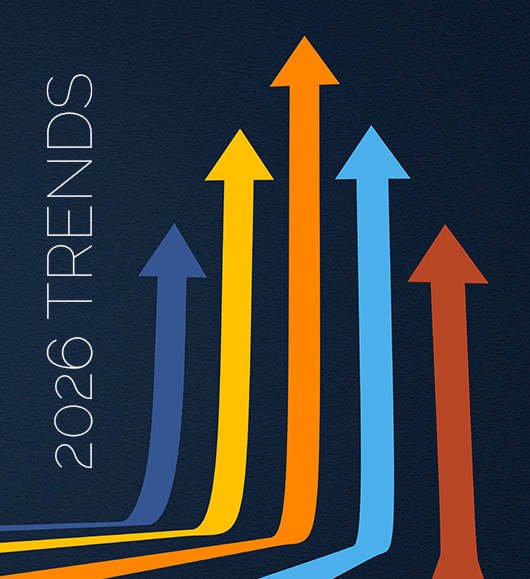
Top 10 Meat & Dairy Industry Trends to Watch in 2026
by Midan Marketing | Trends
As 2025 comes to a close, sights are set on the horizon of a new year. Throughout 2025 and expected to continue into 2026, the global market has impacted many aspects of the meat and dairy industries. Amid ongoing shifts and evolving forecasts, one thing remains...
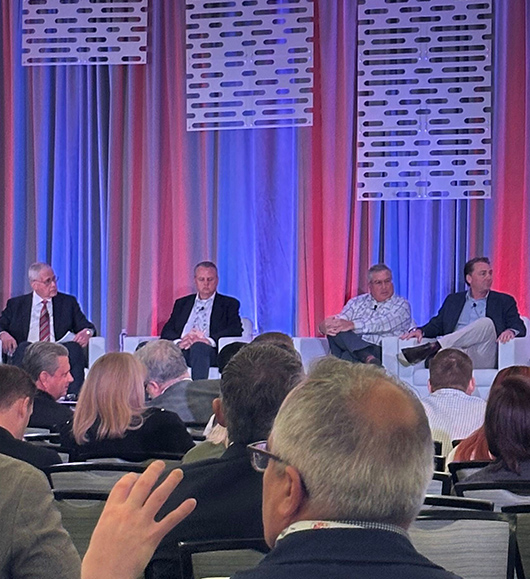
Key Takeaways from MICA 2025: What’s Ahead for the Meat Industry?
by Michael Uetz | Marketing
One of our Midan principals, Michael Uetz, recently attended the Meat Industry Conference & Analysis (MICA) in Fort Worth, TX, and returned with industry insights and updates. Here’s what you need to know as we look ahead to 2026 and beyond: 1. Beef Demand Remains...

From Craving to Cart – Driving Holiday Sales Through Social Commerce
by Bree Boales | Marketing
Social media has become the new starting point for meal inspiration, with 72% of Gen Z turning to platforms like TikTok and Instagram for food ideas.1 Among Gen Z meat and dairy shoppers, 53% say they discover recipes and products on TikTok.2 During the holidays, that...
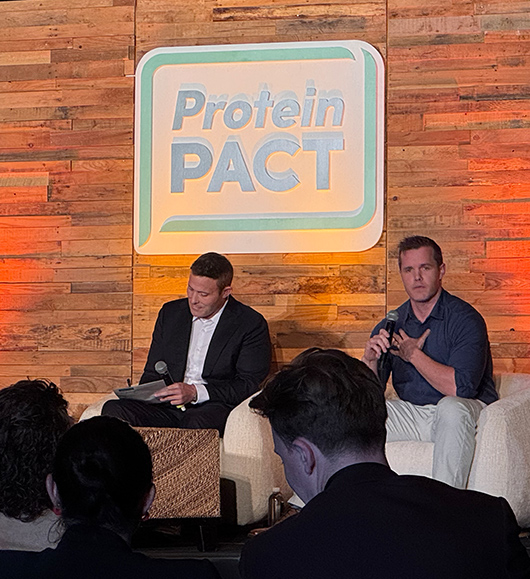
TSA for Marketers: No, Not the Airport Kind—Takeaways from the Protein Pact Solutions Summit 2025
by Danette Amstein | Marketing
Meat In the Middle: A Friendly Debate on Dietary Guidelines and the Role of Animal Protein with Dr. Anthony Chaffee, a medical doctor currently practicing in Australia, and Dr. Dustin Moore, a public health expert and researcher.If you’re like me, the acronym TSA...

From Insight to Impact: Building Strategies That Keep Brands Standing Strong
by Danette Amstein | Branding
“What’s the strategy?” It’s a question I ask often. Sometimes gently, sometimes bluntly. Lately it seems the question is met with more of a pause...a glance, even a shrug. In today’s meat industry, where economic uncertainty, supply volatility, and shifting tariffs...

Social Strategies to Win Big with Tailgating
by Bree Boales | Trends
The weather is getting cooler, leaves are falling and across the nation, many Americans are gearing up for football. And where there’s football, there’s tailgating! In fact, 80% of Americans tailgate each year. The Game Plan for Meat Brands Why does this matter to us...
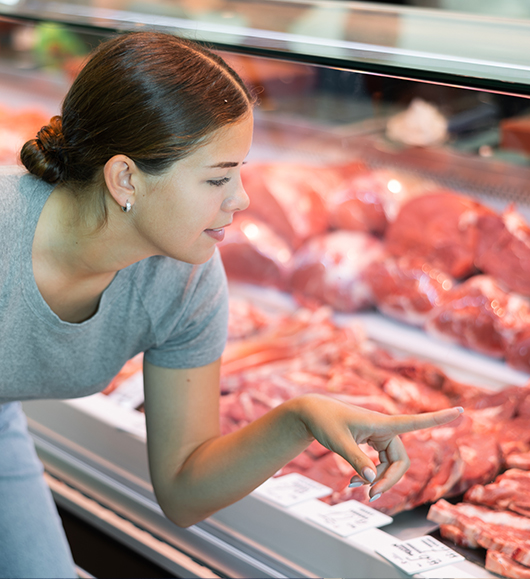
You Are Not Your Target Audience
by Danette Amstein | Branding
If you are a packer/processor, when is the last time you did a store check through the eyes of the consumer? I am talking about standing in front of a retail meat case and really looking at your branded items — not from your perspective of everything that goes into...
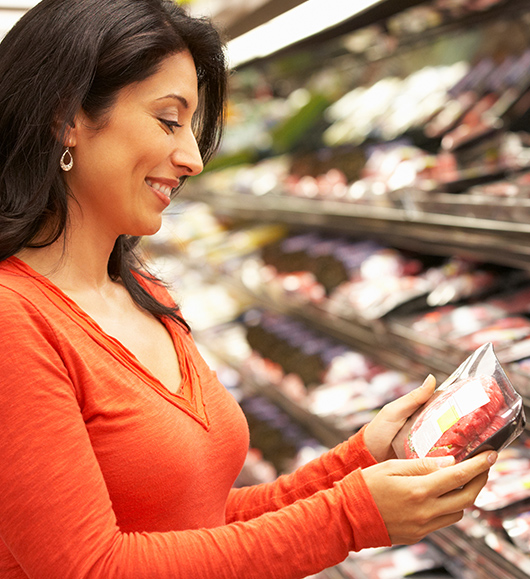
Winning the Convenience Craver: How Meat Brands Can Drive Sales from Back-to-School Through the Holidays
by Kerry Beauchemin | Marketing
Convenience Has Moved From Differentiator to Demand Driver It’s that time of year again when schedules ramp up, the activities seem endless, and the holiday season is just a couple months away! From back-to-school to the approaching holidays, families are faced with a...

Beyond the Plant: What Meat Processors Should Know About Ranching’s Sustainability Shift
by Danette Amstein | Sustainability
Beyond the Plant: What Meat Processors Should Know About Ranching’s Sustainability Shift When we talk about sustainability in the meat industry, conversations often center around emissions, packaging and transportation. But if we’re serious about long-term viability,...
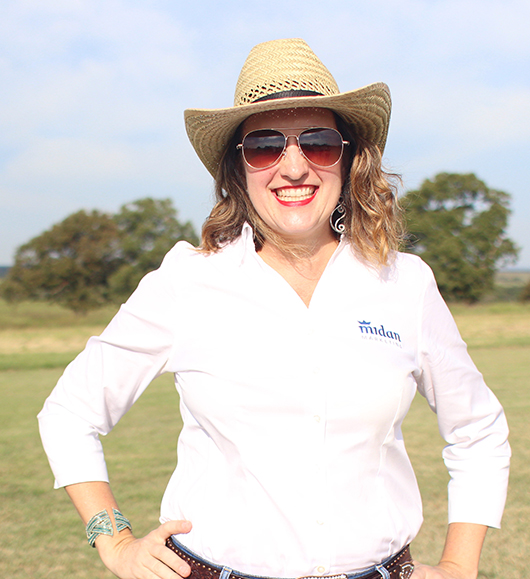
The Protein Halo: Why It Matters More than Ever at 50
by Maggie O'Quinn | Marketing
I celebrated a milestone birthday in May. It’s the one that starts with a 5 and ends with a zero. Yep. Age 50 means more than the harsh reality check of getting my AARP card in the mail (which arrived promptly 1 day after my birthday!) Age 50 means more than the joy I...

Beef, BBQ, and Brand Strategy: Using Social Listening to Tap Into July 4th Consumer Insights
by Sarah Koprowski | Marketing
The Fourth of July lights up more than grills. It lights up social media. As people post photos of hot dogs, brisket, and backyard BBQs, they’re also sharing opinions, preferences, and values in real time. For brands, these conversations aren't just noise - they’re a...

Keep Marketing During Tough Times
by Danette Amstein | Branding
Don’t Disappear Now: Why Meat Brands Must Keep Marketing Through the Chaos If you’re a CEO, CMO or VP of Marketing in the meat industry, you’re probably feeling the heat right now. Supply issues, market volatility, economic whispers of a slowdown, tariffs, fluctuating...

2025 Midyear Trends
by Kindle Catching | Marketing
2025 Midyear Trends Update A lot of things can happen in a year. The world has seen several changes – political leadership transitions, evolving weather patterns, and continued technological advancements – particularly in AI. Looking back at Midan’s 2025 Top Trends...

Maximizing ROI at the National Restaurant Show: How to Make the Most of This Perennial Event
by Andrea Schepke | Marketing
Each May, as sure as the tulips blooming on Michigan Avenue, foodservice industry professionals from around the globe convene in Chicago for the National Restaurant Association (NRA) Show. With great anticipation, they come to network, promote, buy, sell, and learn...

Health & Sustainability Messaging Research: How to Talk So Consumers Will Listen
by Michael Uetz | Sustainability
Understanding the why behind the buy is key to crafting messaging that drives trial and purchase. We’ve been digging into what motivates consumers — in January 2025, we conducted a survey evaluating messaging around topics in health, sustainability, regenerative...

Premium Meat Sales Thrive Even With Tight Budgets
by Danette Amstein | Trends
Consumers might be tightening their grocery budgets, but there's one trend bucking this cautious approach: affordable indulgence. Meat industry professionals, particularly packers and processors, need to tune into this trend, as premium brands are experiencing...

Top 10 Takeaways From the 2025 Annual Meat Conference
by Midan Marketing | Marketing
The 2025 Annual Meat Conference (AMC) in Orlando again saw another record attendance year with more than 2,500 attendees. Meat and poultry industry experts and first-time attendees from all over the world came together to network, grow professionally, and explore new...

Why Digital Advertising Needs Human Connection
by Danette Amstein | Marketing
Blogger’s note: While I love to eat all the time, I only like to shop when I have time. Since the pandemic, my loyalty has become more and more aligned with retailers that make shopping easy and convenient for me. A recent trip inside the actual store I am most often...

Community Management and Social Listening
by Sarah Koprowski | Branding
Community Management and Social Listening: Protecting Your Brand Identity and Reputation Every day it seems something is changing within the digital landscape. The recent announcement by Mark Zuckerberg to cease fact-checking on Facebook and Instagram has raised...

Brand Awareness vs. Conversion
by Danette Amstein | Marketing
A common conversation I find myself engaged in lately revolves around where a brand’s marketing strategy should focus: awareness or conversion. Understanding the balance between them and when to focus on which one can have a significant impact on your bottom line. ...

2025 Top Trends to Watch
by Midan Marketing | Trends
In some ways, it’s getting harder to predict the future. The world is changing so fast that by the time we ask the question, “What’s next?” the answer already arrived - yesterday. Lots of elements are at play as we look ahead to the new year: The U.S. is about to...

20 Years of Midan
by Midan Marketing | Marketing
Get your party hats ready: Midan is turning 20 this month! Think back to when you were 20 years old. Pretty naïve, right? In human years, “20” is still early days; the runway feels very long. But in business, making it 20 years is a MILESTONE, especially for a small...

5 Reasons to Keep Educating Consumers
by Danette Amstein | Marketing
With age comes wisdom. That is the proverbial saying, right? I'd like to believe it now that I am um... well, now that I have more experience! Perhaps the saying should be With experience, comes wisdom. This month Midan Marketing turns 20! Since we consider ourselves...
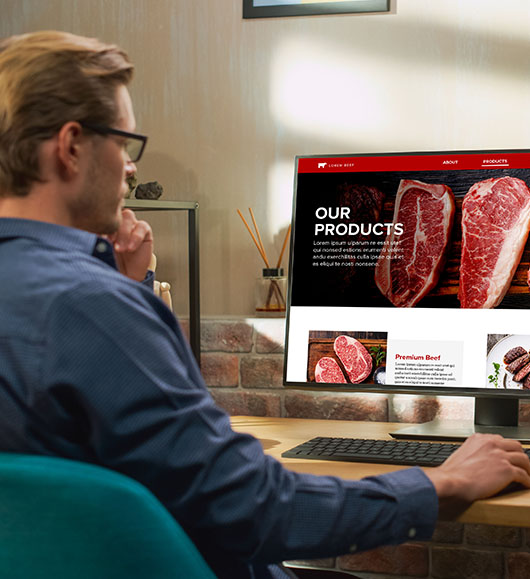
Why Your Corporate Website is the Ultimate Virtual Showroom
by Tony Rector | Technology
As a web developer, I'm often asked why companies even need a website. When I hear, “Why should I invest marketing dollars into developing and maintaining a website when so many other methods are available?” Ouch! That gets me right in the heart. It's true; consumers...

Learning From the Olympics: Lessons for the Meat Industry
by Danette Amstein | Marketing
I love the Summer Olympics. I love hearing the background stories about the athletes, learning of the sacrifice their families make for them to become the best at their sport. I love the suspense of the medal battle that happens when the world’s best congregate in one...

Tech-Savvy Carnivores: How Technology is Shaping Meat Consumers’ Habits
by Justana Schilling | Technology
From the morning alarm chime on a cell phone to a reminder in the evening that it is time to wind down for bed, technology is engrained in our days from start to finish. Consumers are using cell phones, tablets and laptops to track their movements, streamline their...

2024 Midyear Trends Update
by Midan Marketing | Trends
Most of the time, the Midan team is focused on looking forward, with our research eye trained on today’s meat consumers: In what ways are they evolving into the meat eaters of tomorrow? But around this time every year, we stop and take an intentional look backward…...

More Video Stories Equals More Success
by Will Brooks | Marketing
I’ve travelled to several industry conferences this year and I’ve heard a variation of this quote at each of them: “If you don’t show up and tell your story, then your opposition, enemy or competitor will do it for you.” It honestly made a pretty big impact on me as...

The Sustainability Conversation
by Danette Amstein | Sustainability
How to Impact the Sustainability Conversation in the Social Space If you have been reading my blog posts for any length of time, you know I am passionate about the subject of sustainability and how consumers perceive it, especially when it comes to eating meat. To...

Today’s Sustainably Minded Meat Consumers
by Justana Schilling | Sustainability
We see sustainability and climate change mentioned frequently in the news and hear about it in social circles more than ever. Corporate and personal commitments to sustainability are no longer considered to be taking a step above, but rather common practice. Two in...

The Power of Brand Strategy
by Molly Shelton | Marketing
Got a product that you’d love to shout about from the mountaintops, but you’re just not sure if anyone will hear you? Well, that’s where brand strategy comes in. Creating a path to market is a step-by-step journey. The formula for winning lies in leveraging brand...

Takeaways From CattleCon 2024
by Danette Amstein | Marketing
Beef by the numbers, and good beef sustainability – my top takeaways from CattleCon 2024 Given my background, my passion and my personal “why,” few things make me happier than arriving at a conference filled with cowboy hats, jeans and boots – worn by the “real...

AMC 2024 Top 10 Takeaways
by Midan Marketing | Marketing
The 2024 Annual Meat Conference was the largest ever held, with more than 2,300 attendees gathered in Nashville to celebrate all things meat. Educational sessions focused on what’s next in technology, sustainability and consumer trends, while the Exhibit Hall featured...

Gen Z Consumers: Shaping the Future of Meat
by Bridget Wasser | Marketing
Like every generation, Gen Z was indelibly shaped by the environment they grew up in. Gen Zs were the first generation to be raised completely in the digital era, have been exposed to heightened climate awareness and experienced a global pandemic during a pivotal time...

Top 3 Takeaways From IPPE 2024
by Steve Hixon | Technology
Steve Hixon and Maggie O'Quinn at IPPE 2024 This year’s International Production and Processing Expo (IPPE) delivered an experience focused on global technology, innovation, and environmentally friendly products and solutions. Along with the exhibition, educational...

How AI is Shaking Up the Meat and Marketing Industries – Part 2
by Danette Amstein | Technology
(This is Part 2 of a two-part blog series. You can find Part 1 here.) In Part 1 of this blog I shared a headline exercise we did to show how AI can assist with marketing efforts. Below is the continuation of this theme, this time focused on art generation and the...

How AI is Shaking Up the Meat and Marketing Industries – Part 1
by Danette Amstein | Technology
(This is Part 1 of a two-part blog series. You can find Part 2 here.) December is always a great time to reflect on the past 12 months and how things have changed. I like to take a moment to look back on the trends from the year and consider what will move us into the...

Discover the Top 3 Ways to Reach 5 New Meat Consumer Segments
by Michael Uetz | Marketing
Earlier this year, Midan Marketing released our Meat Consumer Segmentation 3.0 research, giving a snapshot of today’s meat consumers. One way to get to know the five new segments is to understand how they each feel about three of the top drivers that have a growing...

2024 Top Trends To Watch
by Midan Marketing | Trends
Over the last several years, words like “unprecedented” have lost their meaning. After a global pandemic and the economic challenges that followed, American consumers are still dealing with the rising cost of goods while now also worrying about two global conflicts, a...
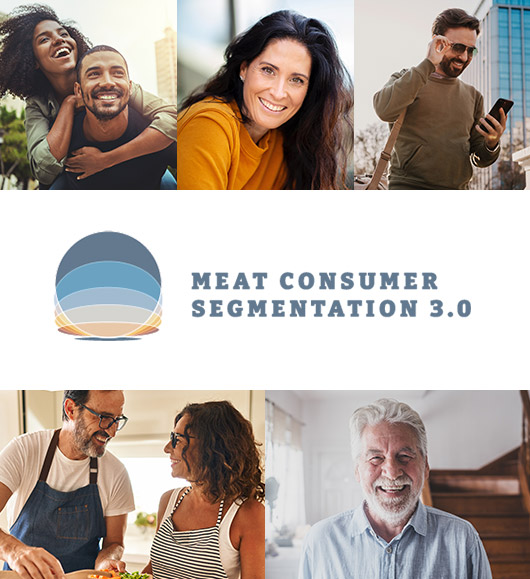
Utilizing Segmentation To Better Understand Meat and Poultry Consumers
by Michael Uetz | Marketing
In theory, every product that goes into the food supply chain should be created with the end user (the consumer) in mind. And that thinking applies just as much to fresh beef, pork and chicken as it does to ice cream or Goldfish® crackers. Starting with the end in...
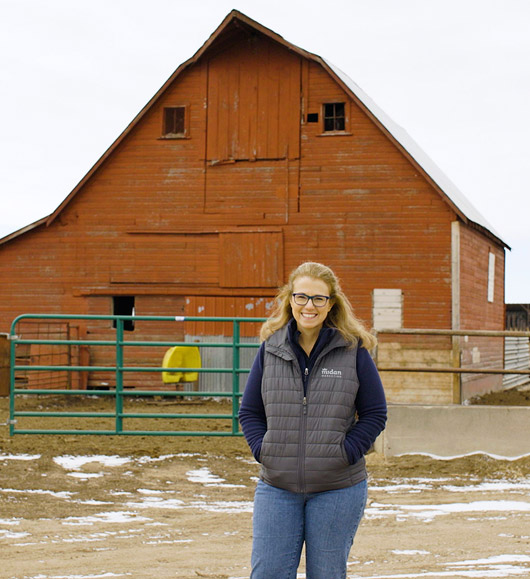
4 Things Marketers Can Learn From Crop Harvesting
by Danette Amstein | Marketing
Lessons from our family’s farm playbook — passed down by the generations before me Every summer, I leave my day job as managing principal of a full-service marketing agency to help with wheat harvest on my family’s farm in Kansas. As the sixth-generation farmer to be...
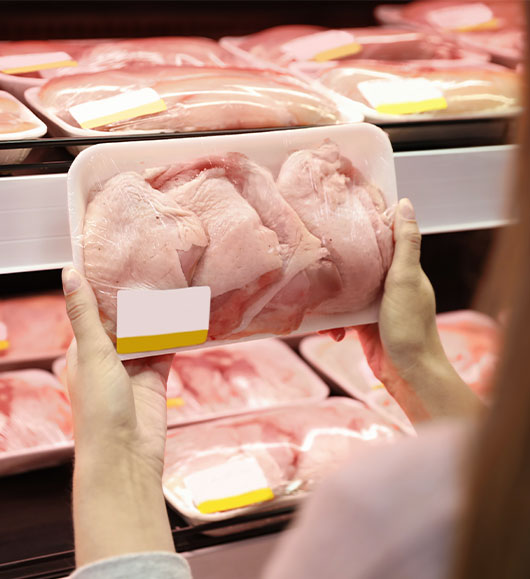
Poultry People: What Midan’s Segmentation Research Reveals About Poultry Eaters
by Maggie O'Quinn | Marketing
I may be a beef girl at heart, but poultry is still a staple in my home. Living in rural Alabama, I pass miles of chicken houses on my way into town and can’t help but marvel at how different chickens are from the cattle I’m familiar with. One thing I’ve never...

Tomorrow’s Meat Industry: Generation Z
by Danette Amstein | Trends
Every company has an interest in being future-focused - thinking about upcoming generations and how they will shape not only the world, but that company’s future. Both the meat and marketing industries have had their eye on Generation Z for some time now. The...

Learnings From the World Meat Congress 2023
by Midan Marketing | Trends
Last week, our Principal Michael Uetz had the opportunity to share Midan’s research into today’s meat consumer with a global audience. Presenting at the World Meat Congress in Maastricht, Netherlands, Michael introduced conference attendees to our latest Meat Consumer...

Margins, Market Share and the Value of Branding
by Connor Guyton | Branding
As the U.S. beef cattle herd continues to rebuild, consumers will continue to see high prices and packers will continue to battle low margins. Weather conditions and low cattle supplies are pushing live cattle prices higher, putting the squeeze on an industry that...

Growing Demand for Sustainability: How the Industry Is Responding
by Kerry Beauchemin | Sustainability
Conversation about sustainability has been growing for several years among both consumers and investors. Today, there is significant media and societal outcry toward industrial agriculture, the current food system and the impact raising cattle has on the planet....

Trends to Reignite the Foodservice Experience
by Maggie O'Quinn | Trends
I spent the first years of my career selling premium beef around the globe. This left a permanent soft spot in my heart for fine dining establishments and steakhouses. The past few years have been tough for the entire foodservice industry, but fine dining was hit...

Top Takeaways: Successful Omnichannel Campaigns Webinar
by Midan Marketing | Marketing
Omnichannel marketing is creating a shortened and seamless “path to purchase” journey for consumers, which can mean a larger return on investment, faster. Meeting meat consumers where they are – before they get to the meat case – allows us the best opportunity to...
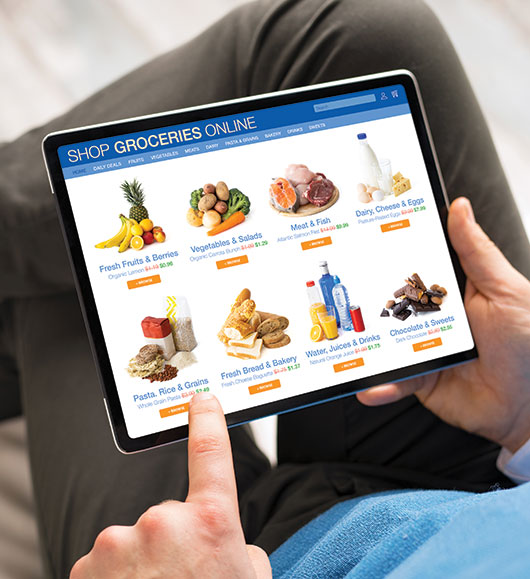
Omnichannel Marketing: Crafting Consistent Experiences for Maximum Impact
by Danette Amstein | Marketing
Omnichannel marketing: There’s a reason why you’re hearing more and more about it – it’s a smart strategy that can lead to big payoffs. The goal of omnichannel marketing is to provide customers with a consistent and seamless experience with your brand, no matter where...

Curate Your Meat Case Using Five New Meat Consumer Segments
by Michael Uetz | Marketing
The last several years have changed consumers. The COVID-19 pandemic and the economic uncertainty that followed have altered consumers’ habits and behaviors in all aspects of their life, including grocery shopping. Now it’s time to get to know your meat customers...

5 Tips To Connect With Meat Consumers
by Bailey Morrell | Marketing
The ice cream drips have dried to the picnic table, the swimming pools are calm and flat, and the campground fires where s’mores were made and stories were told have all been put out – and just like that, summer is over. A chorus of groaning kids knows exactly what...
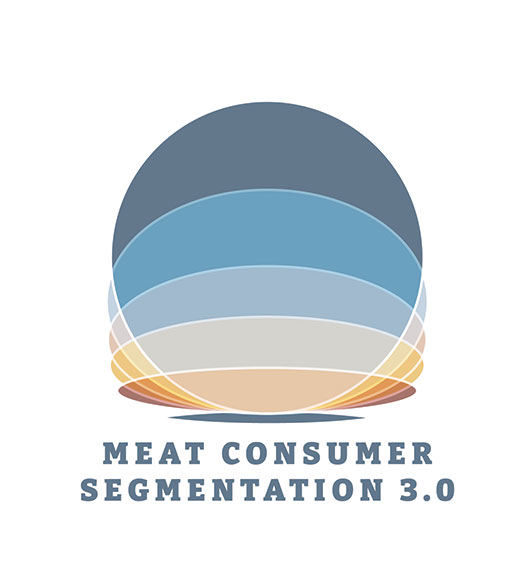
New Consumer Segmentation 3.0 Research
by Midan Marketing | Marketing
Understanding today’s meat consumers has always been a moving target, but in the last couple of years the pace at which our customers are changing has accelerated. Between the pandemic, the economy and growing concerns around topics like health and sustainability,...
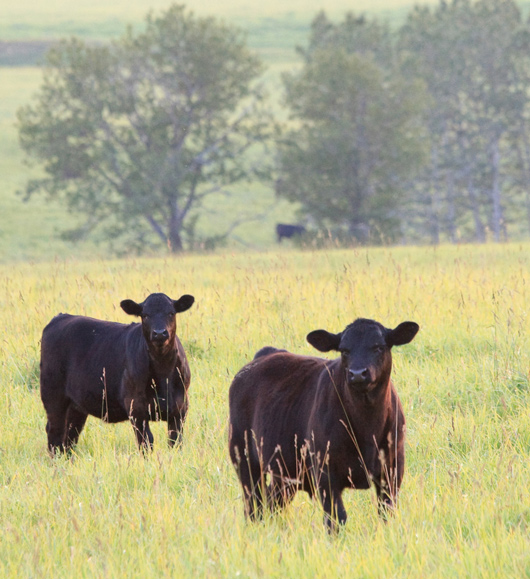
Reflecting on Meat’s Role
by Michael Uetz | Marketing
Earlier this year, “The societal role of meat – what science says” was published in the Animal Frontiers journal. This paper, along with the series of secondary papers quoted throughout, is the culmination of the work done during the International Summit on the...

Promoting American Branding During Turbulent Times
by Connor Guyton | Branding
The hyperfragmentation of American culture isn’t novel. The political and cultural division in the country is visible any time I open social media apps or turn on the news. I’m not here to talk about that – but I do think it’s worth taking a moment to reflect on how...

Leveraging Social Media for Business Success
by Danette Amstein | Marketing
Over the last decade we’ve all had a front row seat to the evolution of social media from essentially a digital toy for teenagers into a tool that is integral for business success. It has been interesting to watch how much more open the meat industry, particularly...

2023 Mid-Year Trends Update
by Connor Guyton | Trends
Half of 2023 is in the rearview mirror. As I consider what the next six months will bring, I can’t help but rewind to the beginning of this year and revisit our 2023 Top Trends to Watch report. The Midan Team identified 10 trends that we expected to influence meat and...

Explore the 4 Topics That Had Everyone Talking at AMC 2023
by Michael Uetz | Trends
Earlier this year, I had the privilege of meeting in person once again with individuals from all parts of the meat industry during the 2023 Annual Meat Conference. In the three years since the last conference, our world has been completely disrupted by COVID-19. Every...
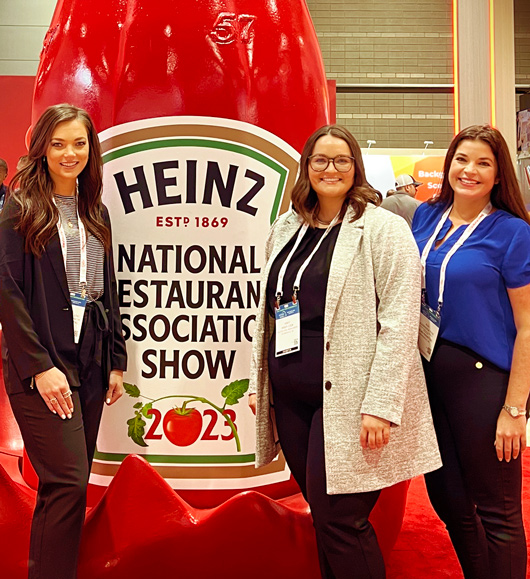
Transforming the Restaurant Experience: Top 3 NRA 2023 Takeaways
by Justana Schilling | Trends
The Midan team was on the scene at the 2023 National Restaurant Association (NRA) Show to catch up on foodservice trends and see some old and new faces. With over 800 first-time exhibitors, more than double last year’s first-time attendees,1 the show halls and...

The Power of Consumer Segmentation
by Danette Amstein | Marketing
Have you ever watched an ad or a short video and been perplexed, or even said out loud, “I don’t get it.” Happens to me a lot, especially during live sporting events. The reason I don’t get it is that I am not the target for what is being advertised. Frequent readers...

3 Ways To Help Consumers Spice Things Up This Grilling Season
by Molly Shelton | Trends
It’s the end of May, which means grilling season is officially here! Consumers have always loved firing up the grill during the summer, whether it’s ribeyes for two or a backyard barbecue with the neighbors. As consumers continue to evolve, though, so does how they...

5 Learnings From the AMC Social Influencer Panel
by Danette Amstein | Marketing
In March, I had the honor of hosting a panel at the Annual Meat Conference highlighting how brands and retailers can use influencer marketing to create loyalty and drive sales. The panel included Jess Pryles, meat influencer and owner of Hardcore Carnivore; Melissa...

4 Takeaways From USRSB General Assembly
by Danette Amstein | Sustainability
In recent years, the meat industry’s sustainability conversation has evolved from “what do we do about sustainability” to “how do we measure and report our sustainability progress.” As we move into this next phase of our sustainability journey, the United States...

Tough Economic Times Impact Supply Chain – From Labor to the Consumer
by Michael Uetz | Marketing
In March, members of the Midan team descended upon Dallas to join the rest of the meat industry for the 2023 Annual Meat Conference. Data and insights were shared from all sides of our industry – from using influencer marketing effectively to the value of supply chain...

3 Things the Plant-Based Meat Brands Got Right
by Molly Shelton | Alt-Meat
What Went Right – and What Went Wrong – With Plant-Based Meat Alternatives Plant-based meat alternatives captured the attention of meat consumers, the media and, well, me. I’ve been carefully watching these brands infiltrate the meat case for the last several years...

Do Your Marketing Claims and Attributes Matter to Today’s Meat Consumers?
by Michael Uetz | Marketing
Through all the ups and downs of the last several years, shopper demand for meat products has remained strong. But as consumers continue to navigate economic pressures, health and sustainability concerns, the meat industry and retailers will need to collaborate to...

A Primer on Artificial Intelligence for the Meat Industry
by Topanga McBride | Technology
This image was generated by AI.If you’re anything like me, you can’t go a day without seeing at least one headline, video or Insta post about artificial intelligence. So much information is emerging daily about the latest AI tools that it’s hard to keep up – one day...

Build Greater Consumer Trust Through Influencer Marketing
by Danette Amstein | Marketing
Influencer marketing. If you hang out at all on social media you have swiped through posts where someone is confidently sharing a product or service they believe in. Some of you are utilizing this marketing tactic in your marketing plans. Influencer marketing is...
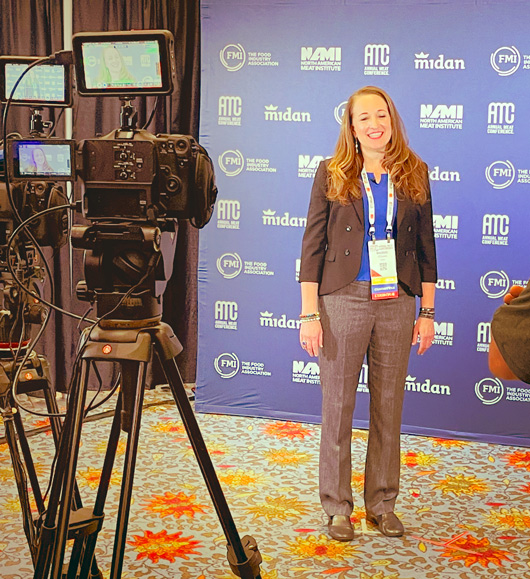
AMC 2023 Top
Takeaways Video
by Midan Marketing | Trends
The Midan Team loved being “live and in person” at AMC 2023 to soak up the learnings, reconnect with colleagues and see the latest innovations our industry has to offer. Our new video division, Parable Pictures, was also onsite to capture Midan team members sharing...

AMC 2023 Top 10 Takeaways
by Midan Marketing | Trends
AMC 2023: Back Together and Better Than Ever At this year’s Annual Meat Conference (AMC) in Dallas, Texas, high energy and enthusiasm were evident: Attendees and exhibitors were delighted to convene in person after a three-year absence. Along with the great vibes from...
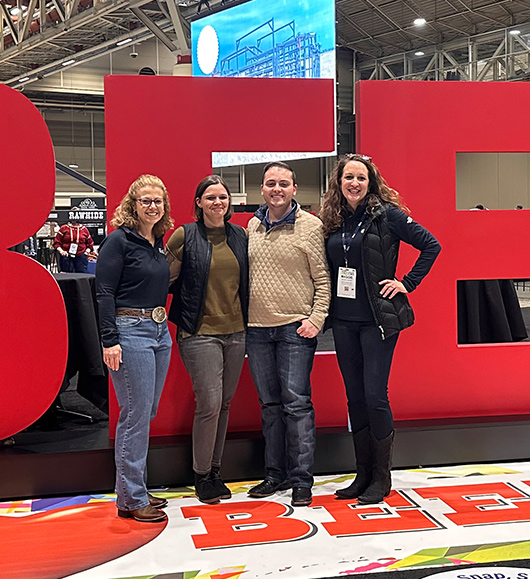
Top Takeaways From 2023 CattleCon
by Danette Amstein | Trends
In February, I had the privilege of traveling with a few of my colleagues to the 2023 Cattle Industry Convention and NCBA Trade Show held in New Orleans. I had the privilege of speaking as part of Cattlemen’s College. We attended sessions, walked the showroom floor...
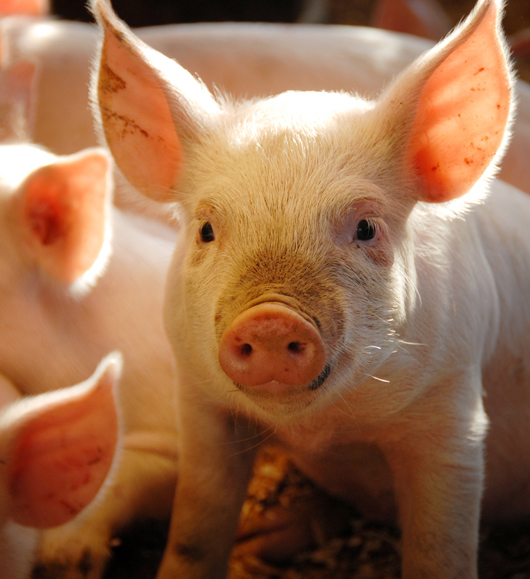
3 Key Messages About Pork in 2023
by Michael Uetz | Marketing
At Midan, we talk a lot about “sharing your story” with consumers in an effort to make animal agriculture more accessible. Those of us in animal ag must make a conscious effort to step back to understand the consumer perspective. Getting a clear understanding of what...

Top Takeaways From IPPE 2023
by Midan Marketing | Trends
The International Production & Processing Expo (IPPE) is the world's largest annual poultry and egg, meat and animal food industry event of its kind. In the following video, members of the Midan Strategy & Business Services Team and other industry leaders...

New Research: How Product Claims are Driving Fresh Pork Purchases
by Bridget Wasser | Marketing
Product claims and attributes now appear more often on today’s fresh meat products. After successfully completing a beef attributes survey in April 2022, Midan Marketing recently completed a new self-funded market research survey focused specifically on the U.S. pork...
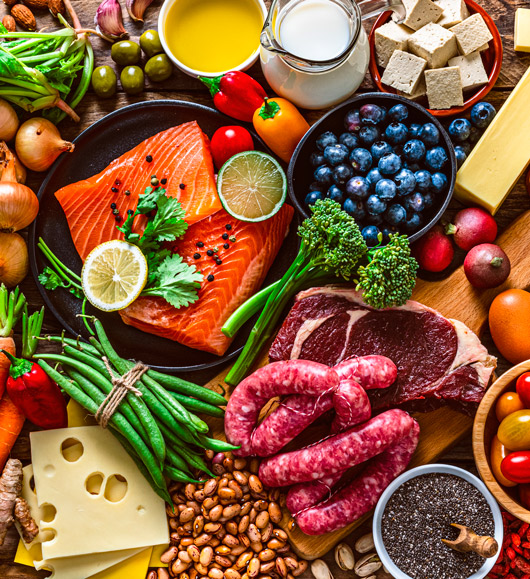
Three Ways to Highlight Your Protein Story
by Molly Shelton | Health/Wellness
The new year always brings resolutions with a focus on health, wellness and consumers becoming their best selves. But for the last couple years, resolutions around health have felt bigger, more encompassing. When humans feel like there is a lot they can’t control...
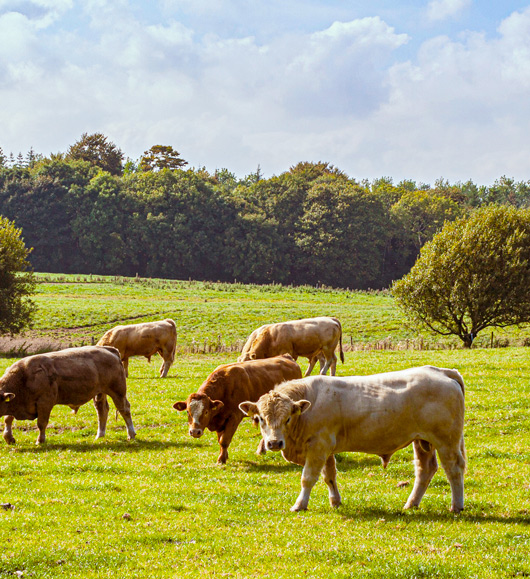
Sustainability: pushing back on, through and forward in 2023
by Danette Amstein | Sustainability
As I look back on 2022, I think about the things that have pushed me this year and things I pushed. Sustainability falls into both categories. As I look forward to 2023, I find myself contemplating what things are going to push the meat industry. Certainly inflation,...

#Adulting: How the First Generation to Come of Age Online is Fueling Experimentation at Retail
by Connor Guyton | Trends
Born in early 1990, I am a Millennial through and through. I remember getting our home’s first PC and having to choose between being on the phone or on the internet thanks to dial-up. I also remember the first time I sent a text message (and how mad my dad was when he...
What Drives Human Decision Making?
by Hillary Martinez | Technology
How the Meat Industry Can Leverage Human Behavior Through Technology As a three-time graduate of Texas A&M University, I have had the privilege to work with world-renowned specialists and laboratories in the fields of Meat Science, Consumer Sensory Science and...
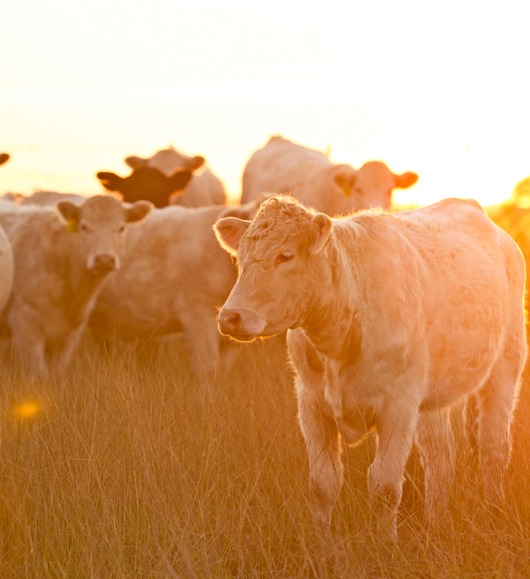
Recurring Research Theme: Concerns About Antibiotics, Hormones and Animal Welfare
by Michael Uetz | Transparency/Traceability
The use of antibiotics and hormones in animal agriculture is a conversation that we’ve been having for years, and I imagine we will continue to have. In 2021, consumers gravitated toward antibiotics claims to the tune of more than $8 billion in sales of meat and...

2023 Top Trends to Watch
by Midan Marketing | Trends
Economic pressures, convenience, technology, sustainability and health – these five broad topics encompass a lot of what is shaping the meat industry today. As Midan looks to 2023, we have identified trends within each of these areas we expect to have the biggest...

Elevating e-Commerce: Meat Consumers Want More From Their Online Shopping Experience
by Connor Guyton | E-Commerce
The COVID-19 pandemic changed consumers in ways the meat industry could have never imagined. One of the biggest evolutions we saw was how they felt about online meat shopping. Before the pandemic, consumers didn’t like the idea of a third-party shopper choosing their...

Get to Know Gen Z Beef Shoppers
by Danette Amstein | Marketing
In late August I had the privilege of tagging along with my daughter and her roommate as they went grocery shopping, preparing to start another semester at NYU. I was happy to come along as mom, but also excited to watch the process unfold as a marketer eager to see...

Programmatic Advertising: Reaching the Right People at the Right Time
by Mike Loftin | Marketing
The rise of digital technology has drastically shifted how businesses reach potential customers. At one time when you wanted to advertise your products on the radio or television, you had to call the sales team at the radio station you wanted to advertise with,...

Visualize It To Memorize It
by Rochelle Johnson | Marketing
In school I would read books, but I would not retain the information for long. I noticed that I remembered material better when I saw it, whether it was an image or a diagram. When I realized that I was a visual learner my world became much easier. That’s why I enjoy...

An Investment in Gen Z is an Investment in Agriculture’s Future
by Tanner Lopez | Marketing
More and more these days, my inbox is filled with reports on what I need to know about Gen Zs - how they consume media, what they eat, how much time they spend on their phones each day. Technically a Gen Z myself (missed the millennial mark by a few years), sometimes...

Promote Beef Attributes to Keep Interest High During Inflation
by Michael Uetz | Marketing
Consumers today are incredibly aware of and concerned about inflation, and it’s impacting the way they shop for groceries, especially higher priced items like meat. In June, shoppers were paying 8.2% more than last year, on average, at the meat case.1 This continues...

Why 21 Is the New 7
by Danette Amstein | Marketing
Most of us have heard the adage that you have to repeat something seven times before it really sticks. From a marketing lens, that’s old news. In today’s landscape where ads, emails and content, content, content seep into every part of our lives, researchers say that...

Think Disruptively to Solve Sustainability
by Kerry Beauchemin | Sustainability
As a brand strategist, it’s my job to remain ahead of the curve, to keep an eye out for future trends that might have an impact on how we stay connected to the consumers of tomorrow. Since I work in the meat industry, I spend a lot of time thinking creatively about...

How To Avoid Roadblocks in the Creative Process
by David Capuzzo | Marketing
Let’s imagine that you’re a company in need of creative work. Putting your vision in the hands of a marketing agency can be scary. As an Art Director, I’ve fielded many concerns working with clients from New York City to North Carolina, but the most common fear I’ve...
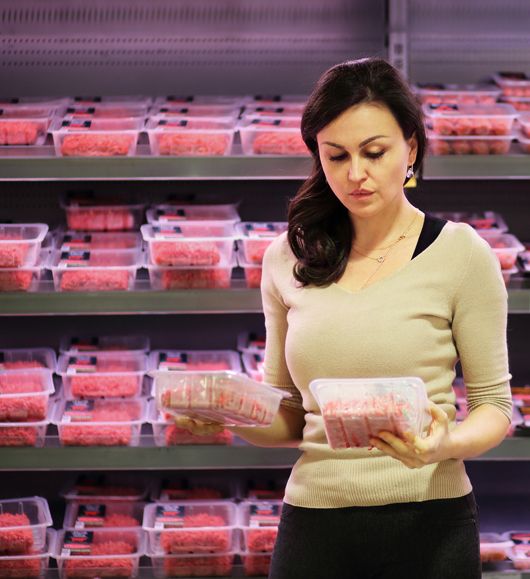
New Research: How Claims are Driving Beef Purchases
by Bridget Wasser | Marketing
How many claims can you count? Marketing attributes and label claims have permeated the fresh meat case and restaurant menus as brands seek to differentiate and win sales. But which attributes have the most impact on consumer behavior and how can marketers capitalize...
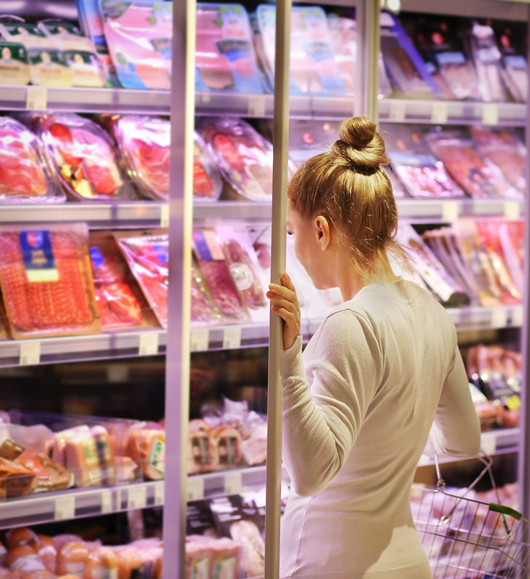
Keeping Meat on the Plate During Inflation
by Valerie Rasmussen | Marketing
With summer grilling season coming to a close, retailers face many challenges in keeping meat in the cart this fall. It’s no surprise that 96% of consumers – almost double numbers from last fall - are leery of skyrocketing grocery prices,1 an ominous weekly headline...
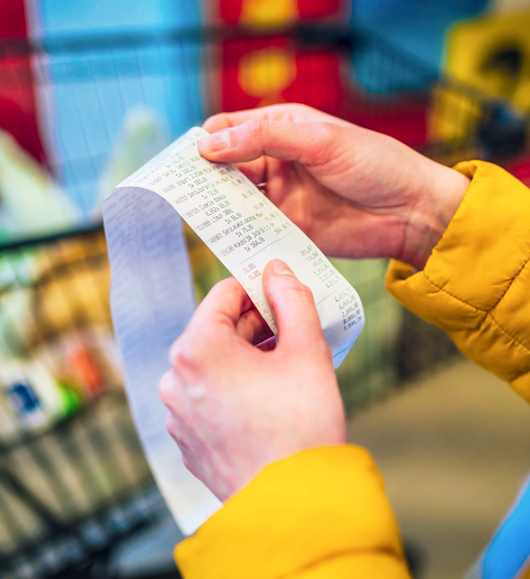
Stability, Value Messaging Ease Consumer Worries During High Inflation
by Michael Uetz | Trends
Inflation — a topic none of us are excited about, yet all of us are keenly aware of. The June inflation numbers, released by the U.S. Bureau of Labor Statistics in July, showed that overall inflation is up 9.1% year-over-year with even higher percentages appearing...
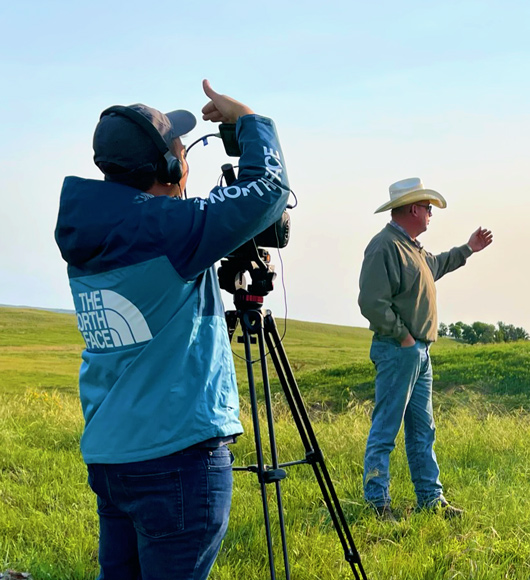
Put Emotion at the Center of Video Marketing
by Will Brooks | Marketing
Emotional connection is at the very core of who we are. As humans, we value that connection not only in our personal relationships but also when we’re being communicated to by brands. While advertisers have desperately been avoiding “direct sell” ads for some time...
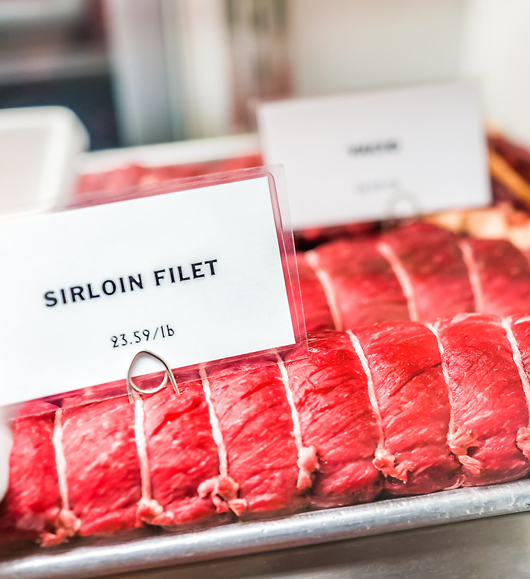
How Marketing Can Help You Weather Tough Economic Times
by Danette Amstein | Marketing
Inflation. Supply chain issues. Labor shortages. Drought. War. Soaring fuel and food prices. Interest rate hikes. And now worries about a recession on the horizon. Unfortunately, we have been here before. But many of us were too young to understand previous economic...

Convenience is King to Today’s Meat Consumers
by Michael Uetz | Trends
Fall is once again right around the corner, bringing with it school, homework and extracurriculars that push the average consumer’s schedule into overdrive. On top of that, inflation is at an all-time high, adding one more layer of stress to the weekly grocery trip....
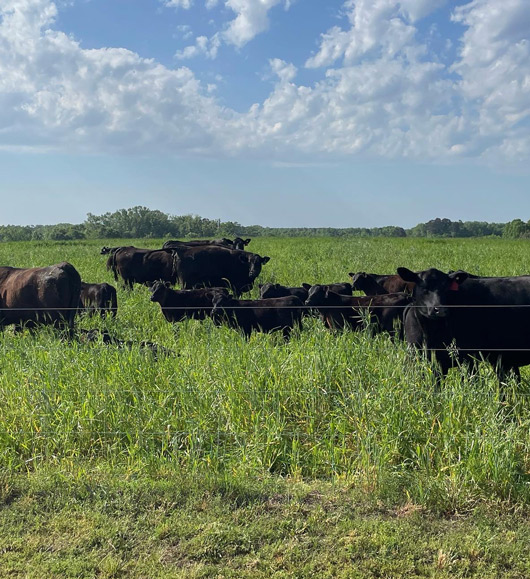
This is What Sustainability Looks Like
by Danette Amstein | Sustainability
Last month I had the opportunity to attend the U.S. Roundtable for Sustainable Beef (USRSB) General Assembly meeting. The day before the meeting, a group of attendees boarded a bus at dawn for a sustainable ag tour. I always jump at the chance to see agriculture in...

Observations From the National Restaurant Association Show 2022: Experiential + Ease
by Molly Shelton | Trends
After a two-year hiatus courtesy of the COVID-19 pandemic, the long-awaited National Restaurant Association Show was back in action last week! As an absolute delight to the senses, this year’s much anticipated show did not disappoint. The electric vibe, culinary...
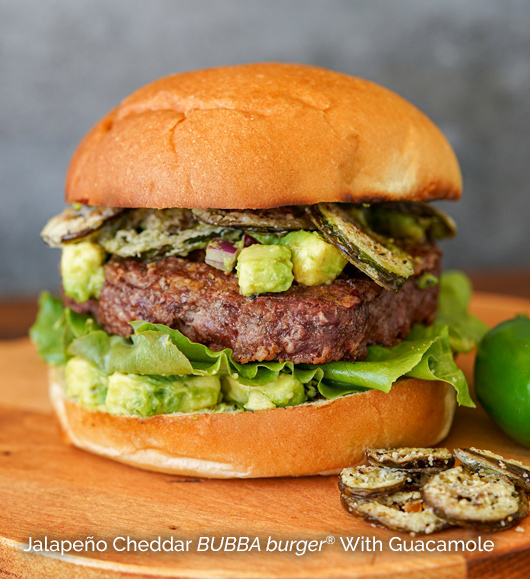
How to Capitalize on Burger Trends
by Molly Shelton | Trends
Summer grilling season is joyously upon us and what better way to kick it off than by celebrating the ultimate grilling go-to: the beef burger! A burger tastes great, goes easy on the wallet and never gets tiresome – its flavor, versatility and accessibility simply...

The Future of Foodservice: It’s In The Experience
by Maggie O'Quinn | Trends
Throughout the pandemic, a question that has lingered in my mind is what foodservice will look like on the other side of all this. We’ve seen so many amazing restaurateurs make changes to their business models to stay afloat and – unfortunately – I don’t think those...

Meatless Diet a Privilege Only Some Can Afford
by Bridget Wasser | Alt-Meat
For the past few years, there has been significant conversation about plant-based diets potentially becoming the standard around the world and this intensified in advance of last year’s UN Food Systems Summit. Leading up to the summit, the EAT-Lancet diet, one which...
What Meat Consumers Say Versus What They Do
by Connor Guyton | Sustainability
“According to research conducted by Midan Marketing” may be one of my favorite phrases to write when I’m developing content for Midan or our clients. In my position as a Customer Insights Analyst, it’s my job to know what consumers are thinking, feeling and doing when...

Fire Up the Grill for This Summer’s Three Hottest Consumer Categories
by Michael Uetz | Marketing
As temperatures warm up, consumers have started planning for grilling season. For this summer’s backyard barbecues, we expect there will be three distinct consumer mindsets at the meat case: the cost-conscious consumer who is feeling the effects of inflation but still...

Ad Nauseam
by Danette Amstein | Sustainability
Last week I had the honor of attending and speaking at the U.S. Roundtable for Sustainable Beef’s (USRSB) General Assembly meeting. This conference is a true roundtable, bringing together the entire beef supply chain for frank conversations about how to improve upon...
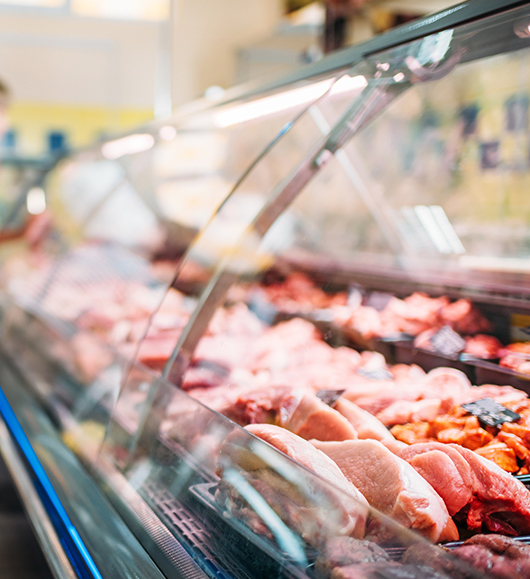
Driving Pork Value Through Segmentation
by Patrick Fleming | Marketing
Pork is a wonderful protein choice for consumers; it’s flavorful, healthy and affordable. For packer/processors and retailers, pork offers an opportunity to drive additional sales and dollars at the meat case if we follow the example set by beef and chicken. There are...

Now is the Time to Optimize Your Share of Stomach, Heart, Wallet
by Danette Amstein | Marketing
These days you can’t talk about meat without mentioning inflation — and many of those conversations center around consumers cutting back on meat. So, what’s the cost to packer/processors who don’t maintain their share of consumers’ stomachs, hearts and wallets? The...

Now’s the Time to Lead the Sustainability Conversation
by Kelly Loganbill | Sustainability
Consumers need our help to eliminate confusion about sustainability Sustainability – it's a big word with a multitude of meanings. We’ve been hearing about this topic for years as major companies have begun developing and implementing sustainability goals and...
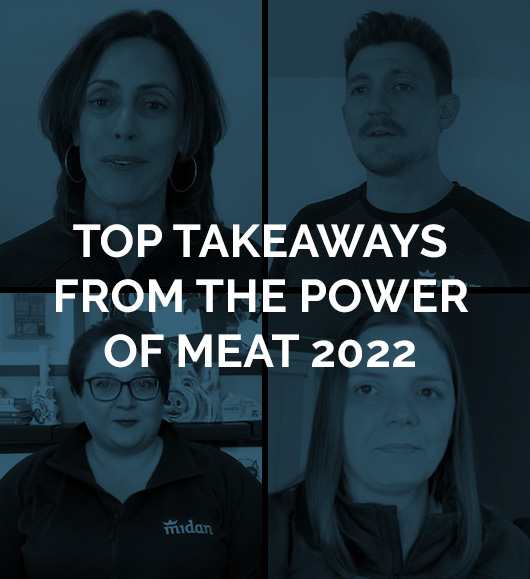
Top Takeaways from The Power of Meat 2022
by Midan Marketing | Trends
Now in its 17th year, the annual Power of Meat* study tracks how today’s shoppers purchase meat and has become a valuable industry benchmark. Anne-Marie Roerink shared the highly anticipated Power of Meat 2022 findings in an FMI-hosted webinar on March 8, covering...
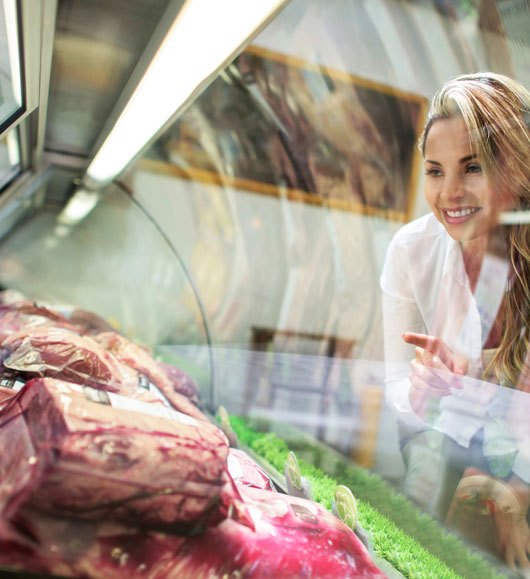
Top 3 Takeaways From NGA Meat Trends Presentation
by Michael Uetz | Trends
Midan Marketing Principal Michael Uetz spoke during The NGA Show 2022 about current consumer trends at the meat case. In case you missed it, here are the top three takeaways from the presentation: 1. Supply Chain Woes Have Reached Consumers We have all dealt with...

TikTok: Is Now the Time for the Meat Industry to Embrace It?
by Danette Amstein | Marketing
If a Gen Z attended your recent family gatherings, odds are there was at least one conversation about a video on TikTok. Users on other social media platforms often say that TikTok is, “a talent show for people who have no talent.” It’s a funny line but TikTok is no...
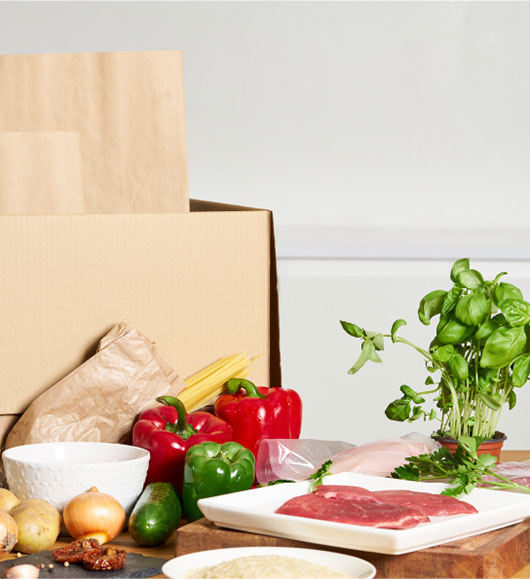
A Look Ahead at 2022’s Top Meat Trends
by Michael Uetz | Trends
As we slip into a new year, the Midan Marketing team has been looking at which trends from 2021 we believe will stick around as well as those new trends we can expect to see in 2022. Our blog detailing 2022 trends for the meat industry is available on our website, but...

How to Combat Three Critical Threats to Your Meat Business in 2022
by Danette Amstein | Marketing
Stop me if you’ve heard this — and I know you have, because I say it all the time to anyone listening: As a meat processor, your biggest concern is NOT other meat producers. In fact, they could be your best allies in a shared struggle to combat the biggest threats...
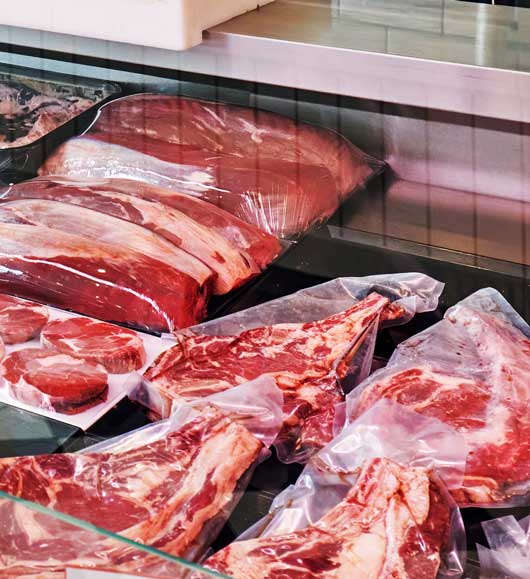
2022 Top Trends to Watch
by Midan Marketing | Trends
After closely studying meat consumers all year, Midan now turns an eye toward what’s next for our ever-evolving industry. We’ve explored how perceptions about issues like health and sustainability will not only impact what shoppers purchase at the meat case but also...
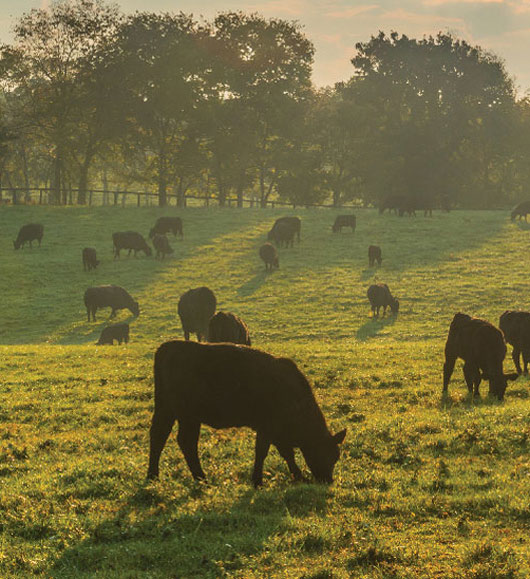
Use Animal Welfare to Get Meat Consumers Engaged With Sustainability
by Michael Uetz | Sustainability
As 2021 ends and we look toward the upcoming year, sustainability is one trend we feel certain will stick around. It has been gaining momentum for several years and is now a term that is commonplace for most shoppers. However, that doesn’t mean consumers fully...
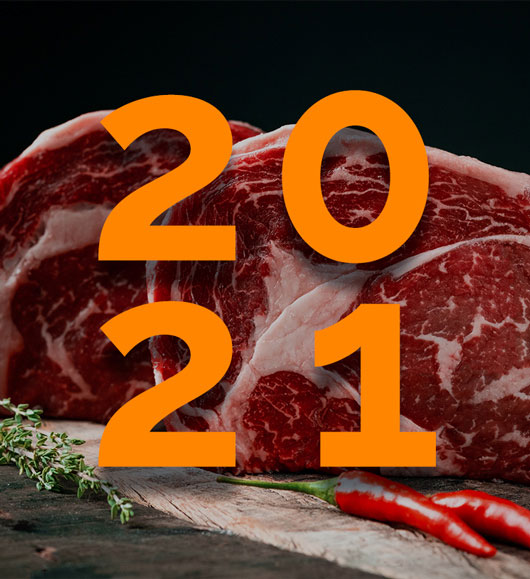
Midan Thought Leadership: 2021 Year in Review
by Midan Marketing | Marketing
Keep Your Eye on Changing Shopper Demographics Michael, a research guy at heart and a devotee of the latest and greatest meat consumer trends, shared learnings from our Multicultural Meat Consumers research in the June issue of The Shelby Report: As the U.S....

How Video Creates the Authentic Storytelling Today’s Consumers Crave
by Danette Amstein | Marketing
Our brains are wired to create real connections with the help of storytelling. And telling your brand’s story is critical to future success. It is that big of a deal. (I’m so passionate about this topic that I find myself blogging about it often here on Meatingplace.)...

Communicate the Value of Meat to Combat Rising Prices
by Michael Uetz | Marketing
For more than a year, the U.S. consumer has been forced to weigh fears around the economy and health, along with other issues a pandemic and life in general bring. In July, Americans were split on their concern for the public health crisis and the economic crisis.1 We...
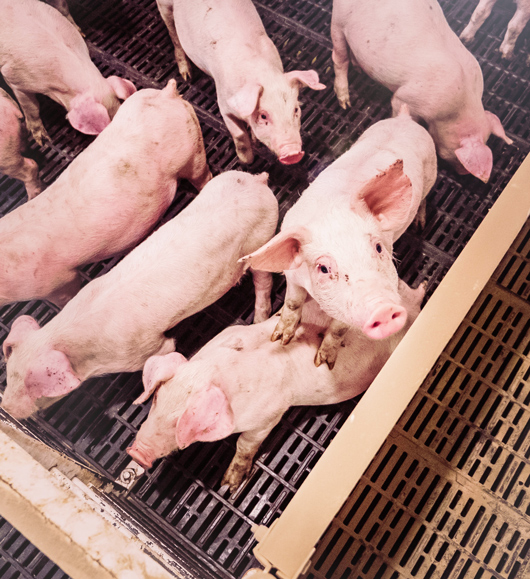
It’s Time to Embrace the Realities of Modern Farming
by Patrick Fleming | Transparency/Traceability
“Old McDonald had a farm. E-I-E-I-O.” – What are you picturing? If you’re like most, it’s probably a cow, a pig, a horse, two chickens and a cute dog running behind old Mr. McDonald. What probably makes you different than most Americans, though, is that you understand...

Convenience and Premiumization – Two Trends Expected to Influence Fall Gatherings
by Michael Uetz | Marketing
This year, many Americans are hoping for a normal fall and holiday season. Vaccinations have helped many people feel more comfortable traveling and gathering again. As virus waves and variants come and go throughout the country, many retailers find they’re still...
Sustainability – Think Like a Politician to Get Consumers On Board
by Jessica Glover | Sustainability
Sustainability. It is a complex term, but these days it has become a buzzword that gets tossed around in conversations with friends and family and hyped by the media. There are conflicting definitions, outdated stats and plenty of misinformation being shared. It’s not...

Today’s Consumers Can’t Separate Animal Welfare From Sustainability
by Danette Amstein | Sustainability
It seems most things are complicated these days, not least among them: Sustainability. While we assume the term "sustainability" is now synonymous with “the environment,” we need to take a step back. It turns out the key to unlock the credibility of the meat...
Regenerative Agriculture — Meat Claim of the Future?
by Kerry Beauchemin | Sustainability
Mother Earth at a Critical Threshold For thousands of years, humankind has been dependent upon the Earth’s resources for food, safety and survival. Over the last hundred years or so, the Earth's population has grown significantly and along with it, consumer...

Three Meat Snacks That Are Making a Comeback
by Michael Uetz | Marketing
3D printing technology is not new to the food world – chocolatiers have been using the technology for years to create intricate shapes for their pieces. Chocolate, of course, is softened when heated and then hardens at room temperature. This makes it easy to heat...
Future of Foodservice: 3D Printed Food
by Connor Guyton | Trends
For a few years, I’ve had a zany theory about the future of food – particularly foodservice. Sharing it typically yields either a look of confusion or curiosity. My background is in food science and my job at Midan Marketing is all about consumer and industry insights...
Learn How Alternative Meats Are Transforming The Meat Case
by Michael Uetz | Alt-Meat
The meat case today looks different than it did just a few years ago. Branded meat, plant-based meat alternatives, claims, nutrition callouts, new packaging types – today’s meat case is in the process of a total transformation. New technologies, including cell-based...
If You’re Not Targeting Clean Eaters, You’re Missing Out
by Molly Shelton | Alt-Meat
Does it seem like everywhere you turn, there is another so-called health guru promoting the latest and greatest diet trend? While some of these fads come and go, others have staying power. With health and well-being at center stage for consumers as we collectively...

Traceability and Transparency – Table Stakes for Tomorrow’s Consumers
by Maggie O'Quinn | Transparency/Traceability
When it comes to trends at the meat case and what topics consumers are talking about, there’s an influencer I’m starting to recognize – Walmart®. They weren’t the first corporation to commit to becoming greener and they don’t have the loftiest sustainability goals but...
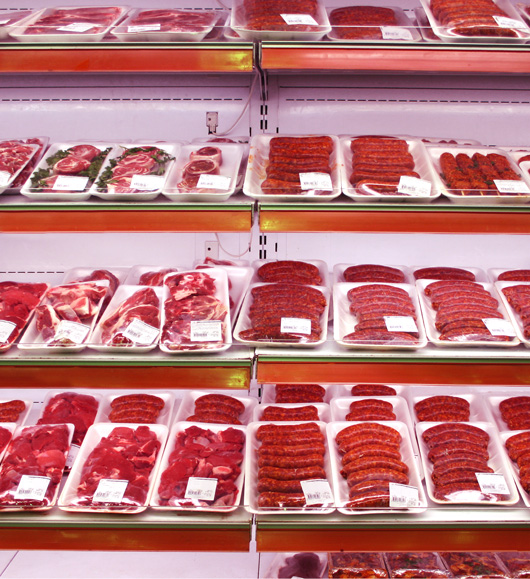
Four keys to win over Gen Zs
by Danette Amstein | Marketing
College recruiting is an interesting genre of marketing. I am not talking about the recruitment of athletes but of scholars. For the past year I have been on the parent side of this, fascinated by the marketing efforts that went into capturing my daughter’s attention....
Use Omnichannel Marketing To Reach Online Meat Shoppers
by Michael Uetz | Omnichannel
The biggest shift grocery retailing has experienced due to the pandemic is likely the increased adoption of online shopping, especially in the perimeter departments, where consumers were not yet comfortable allowing others to choose their products. According to the...
Meat Tech 101: Advancements Changing the Definition of ‘Meat’
by Connor Guyton | Trends
A short time ago in a land not so far away, when you went to the grocery store to buy meat, you could reasonably assume everything in the meat case was made from responsibly harvested livestock and that the ingredients list would include, well, meat. USDA grades and...

Twitter + Public Relations = Mapping a Thought Leadership Path
by Kelly Loganbill | Marketing
In the meat industry, thought leadership is a challenging goal. After all, perceptions of protein and the food supply chain are constantly shifting. It’s understandable that companies want to play a part in lifting positive sentiment, helping consumers believe in the...

Does Your Meat Case Reflect the Diversity of Today’s Multicultural Consumer Base?
by Michael Uetz | Marketing
With each new generation, the population of the United States is becoming more racially and ethnically diverse. Estimates from the U.S. Census Bureau show that about 60% of Americans today identified as non-Hispanic White in 2019. By 2030, that number is expected to...

The Delectable Truth About Burgers
by Molly Shelton | Health/Wellness
A quintessential American summer just isn’t complete without the sound of juicy beef burgers sizzling on the grill. As warm weather approaches and COVID-19 restrictions begin to ease, consumers have another reason to embrace the start of summer: Their beloved burger...

Carbon Footprint: The on-pack label you didn’t know you needed
by Danette Amstein | Marketing
Sustainability. Ask 10 consumers to define sustainability for the meat they buy and you will get 10 different answers. Yet, all major processors and most retailers and foodservice operators have set goals for it, establishing future finish lines where they can proudly...

See Why More Meat Consumers Are Hopping On Board the Charcuterie Trend
by Michael Uetz | Trends
From 15th century French origins to social media phenomenon – charcuterie has made an impressive and visually pleasing comeback. Charcuterie boards traditionally feature a curated selection of cured meats and cheeses alongside noshes like crackers, berries, nuts and...
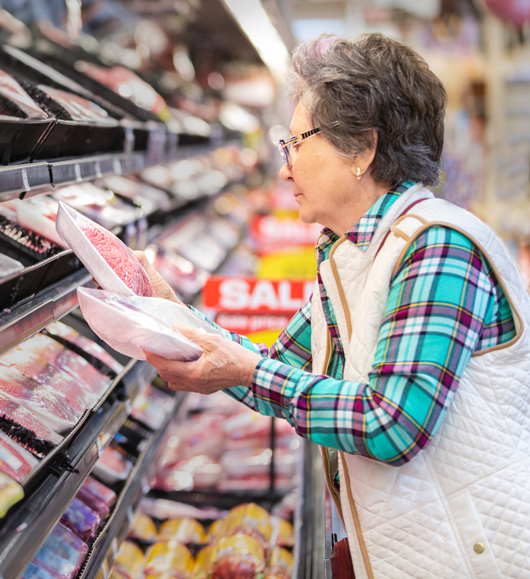
Antibiotics provide opportunity for industry to re-educate consumers
by Danette Amstein | Transparency/Traceability
Antibiotics have been part of meat production for decades. Today, they have become a source of controversy and, for some consumers, fear. In 1999, Chipotle became one of the first restaurants to tout that it sold meat from animals never given antibiotics. By 2017,...

Midan Gives Back on the First Annual Diversity & Inclusion Volunteer Day
by Midan Marketing | Marketing
"We make a living by what we get, but we make a life by what we give." — Winston ChurchillEveryone wants to help. To contribute. To give back. But there’s often a gap between “wanting” and “doing.” It’s sometimes hard to take that first step toward becoming a...

Make TikTok Part of Your Marketing Toolbox
by Michael Craddock | Omnichannel
The social media platform that has taken the world by storm, TikTok, has been a big topic of conversation for marketing professionals everywhere. More and more, TikTok is becoming an integral part of marketing plans for the meat industry. The app is known for being...

The “Future of Foodservice” Series: Pandemic’s End in Sight: What Now for Foodservice?
by Connor Guyton | COVID-19
In this multipart blog series, Midan team members are sharing how restaurants, retailers, distributors, producers and chefs have had to rethink foodservice — and what we believe the meat industry can do to match that creativity to find new ways of doing business. In...
AMC 2021 Top Takeaways Video
by Midan Marketing | Marketing
Not being “on-site” didn’t stop the Midan team from capturing the key insights from the all-virtual AMC 2021. Watch our team members share their firsthand insights in our AMC Top Takeaways video below. And in case you missed it, be sure to check out our AMC Top 10...
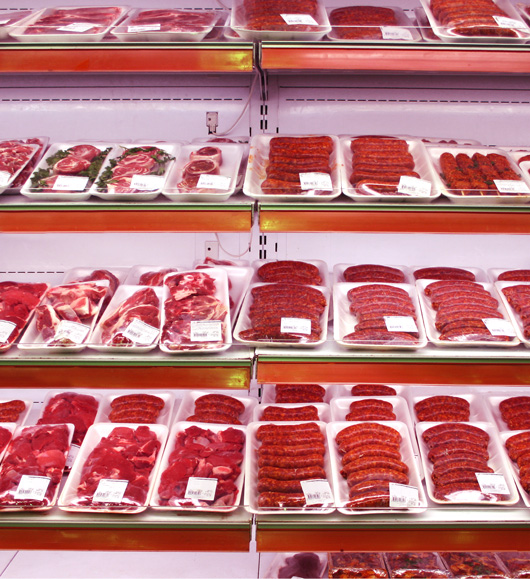
Four Key Drivers That Will Keep Meat Consumers Coming Back
by Michael Uetz | Marketing
The meat case has changed significantly in the last decade, but so has the consumer. Today’s meat shopper has a lot on their mind when making meat purchase decisions – sustainability initiatives, product convenience, food safety, animal welfare, the use of antibiotics...

Is the meat industry playing David to alt-protein’s Goliath?
by Danette Amstein | Alt-Meat
I’m not a fan of plant-based “meat” products. So, as a marketer, it pains me to give them marketing credit for convincing people — our consumers — that their product is healthier and better for the environment. When protein becomes anything other than “real meat” in...
AMC 2021 Top 10 Insights
by Midan Marketing | Marketing
The “State of Change” theme for AMC 2021 was more than apt, as the meat industry gathered virtually to reflect on a year of incredible upheaval wrought by the COVID-19 pandemic, recognize the resilience of stake holders across the meat channel and share hard-won...
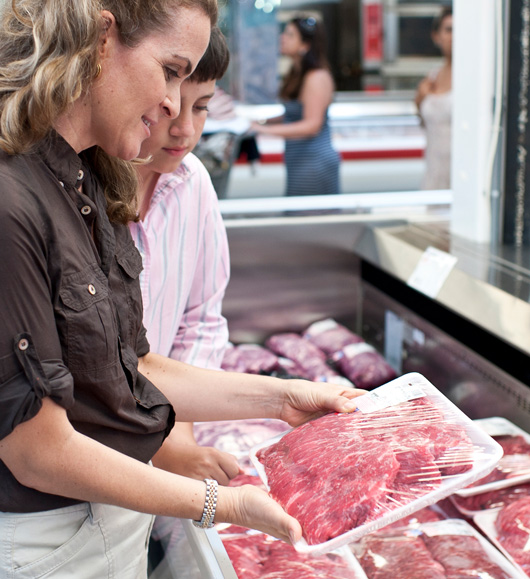
Is Your Meat Case Stocked With Claims Your Customers Are Looking For?
by Michael Uetz | Marketing
The COVID-19 pandemic has put health in the spotlight. During the tumultuous year that was 2020, personal health and the health and well-being of others was repeatedly a concern of consumers.1 When it comes to the meat case, consumers often equate “health” to natural,...

Sustainability: It Has Never Been Just a Buzzword for Ranchers
by Danette Amstein | Sustainability
Farmers and ranchers are the original environmentalists. Most are hard core. Often, though, consumers don’t realize it because those working the land and caring for our livestock day in and day out aren’t focused on specific things like reducing our greenhouse gas...

D2C: Things to Consider Before Jumping In
by Alex Tyre | Omnichannel
During the holidays, we kept a box of individually wrapped cookies on our porch. Once the weather starts to warm up, we’ll likely put out water bottles or Cokes. Our next-door neighbors leave a basket of homemade masks by their front door. Why? We want to take care of...

Consumer Insights Are The Key To Retail Success
by Michael Uetz | Marketing
Data – it’s at the heart of every business decision. Should you run the same St. Patrick’s Day corned beef promotion as last year? What meat cuts do your shoppers usually gravitate toward in the early spring? Is there a new opportunity to cross promote fresh produce...
Public Relations: The red-headed stepchild?
by Kelly Loganbill | Marketing
I’ve been in the public relations industry for more than 20 years, and honestly, my parents still have no idea what I do. Their explanation to friends and family always entertains me when I happen to overhear it at a function or when it’s played back to me by family...
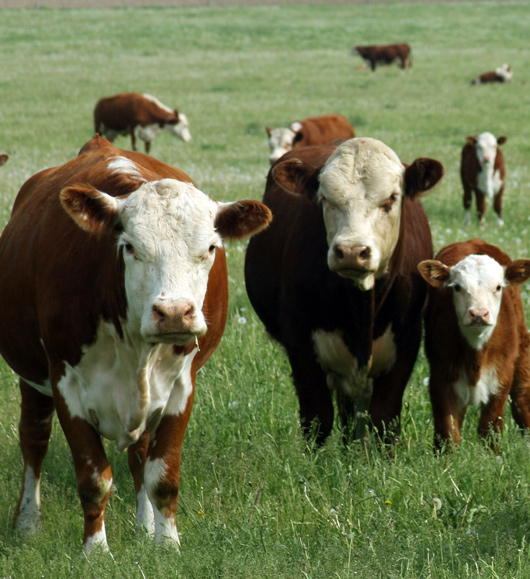
10 Insights About Today’s Natural and Organic Meat Consumers
by Midan Marketing | Transparency/Traceability
Meat packages, once a basic commodity bearing only weight/price labels, are now veritable billboards for the products they contain, branded and adorned with a range of claim stickers. At Midan, we wanted to learn more about who is buying claims-based meats,...
How does ‘kitchen fatigue’ steer consumers’ meat choices?
by Danette Amstein | COVID-19
As the pandemic slogs on, I find myself tired of being in the kitchen. Really, really tired of it. Life before COVID-19 included a lot of weeknight activities, and with them great opportunities (and excuses!) to eat out. I don’t have any of those right now. Haven’t...

Technologies That Will Impact The Meat Case In The Next Five Years
by Michael Uetz | Technology
The science fiction genre has long been predicting the technologies and foods of the future. In the 1970s and ‘80s, 2021 was a far-off world ripe for narratives. Lucky for us, few of the stories provided an accurate picture of our reality – we aren’t eating wafers of...

The vultures are circling: Address negative perceptions of the meat industry now
by Danette Amstein | COVID-19
Shock. Fear. Panic. Frustration. These emotions have been coursing through Americans since mid-March and have been especially acute for those of us in the meat business. I know I experienced the first two, then was too busy supporting crisis communication to ever have...

2021 Top Trends to Watch
by Midan Marketing | Trends
If those of us in the meat industry have learned anything from 2020, it’s that even the most thoughtful predictions go out the window in the face of a pandemic. But it’s precisely that pandemic that has irrevocably altered how we do business and exponentially...

5 things you should demand from your sales partner
by Danette Amstein | Marketing
For most of the country an in-person sales call is a faint memory. We all went into lockdown in March assuming it was going to last only a few weeks. Now, here we are getting ready to flip the calendar to a new year and we’re still waiting to resume in-person...
Turn The Pandemic’s Unforeseen Changes Into Future Business Growth
by Michael Uetz | COVID-19
2020 has been a year for the history books. Just inside the grocery store walls, we have experienced panic buying, supply chain disruptions, hero pay, out of stocks, price increases, new cleaning regimens and customer mandates, and – maybe finally, a sense of what our...
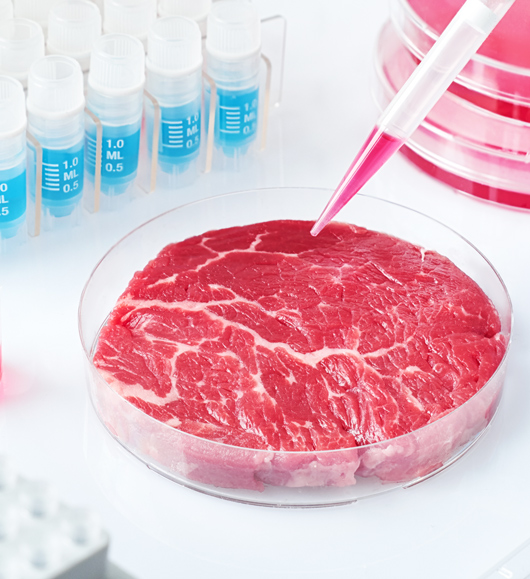
Cultured Meats: Who, How and When?
by Connor Guyton | Alt-Meat
Cultured Meats: Who, How and When? In October, team members from Midan Marketing attended the virtual Cultured Meat Symposium to learn more about the cultured meat and poultry products which promise (or threaten) to turn our industry on its head. As a food scientist,...

Use Brand Power To Grow Revenue And Loyalty In Fresh Meat
by Michael Uetz | Branding
Historically, fresh meat – especially beef – has been sold as a commodity with no brand labeling. Today, the meat case has more brands in it than ever – national brands (like Tyson, Hillshire or Perdue), private label brands (including store-branded products) and...
The Evolution of Online Meat Shopping During the COVID-19 Pandemic
by Midan Marketing | COVID-19
Midan’s seventh COVID-19 study revealed key insights about how online shopping has evolved since the pandemic began in March.Get additional COVID-19 Insights here. Questions about our research? Contact us.

Meat Consumer Shifts Creating Prime Opportunities
by Danette Amstein | COVID-19
The pandemic has made an indelible imprint on American behavior: We don’t socialize the same way, we don’t work the same way, we don’t shop the same way. And we definitely haven’t been consuming meat like we did before COVID-19. As Anne-Marie Roerink has been...

Meal Solutions Offer Options for Consumers and Opportunities for Retailers
by Michael Uetz | Trends
The past several months have created millions of more confident home cooks, many by necessity. With restaurants and office buildings closed, American consumers have been spending more time at home and in the kitchen.According to Midan’s July COVID survey of meat...

The “Future of Foodservice” Series: Influencer Partnerships Offer Win-Win Opportunities
by Myasia Burns | COVID-19
In this multipart blog series, Midan team members are sharing how restaurants, retailers, distributors, producers and chefs have had to rethink foodservice — and what we believe the meat industry can do to match that creativity to find new ways of doing business....
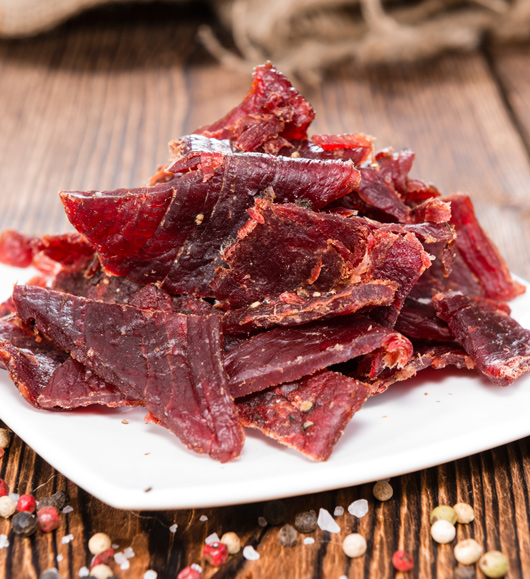
Data Shows Consumers Reaching For Fewer Meat Snacks
by Michael Uetz | Health/Wellness
The coronavirus pandemic has upended how consumers eat as well as what they are eating. For most retail categories, this has been a boon – with significantly more dollars being spent on groceries to offset the decrease in dining out. But one category has lagged behind...

Blended Proteins: A Healthy Balance For Retailers And Flexitarians
by Michael Uetz | Alt-Meat
As consumer attitudes toward meat are undergoing significant changes, new lines of meat alternatives are hitting the shelves every day. These changes are being driven by shifts in the U.S. population toward younger generations with increasingly diverse ethnic profiles...

The “Future of Foodservice” Series: The Power of the Foodservice/Processor Partnership
by Meredith McDuffie | COVID-19
Meredith McDuffie has a passion for foodservice. She’s spent more than 20 years in the industry, working as an operator as well as in sales, marketing and culinary roles. Her love and knowledge of food trends, back of house operations, restaurant marketing and...
Future of Ag Podcast with Tim Hammerich “Midan Marketing: A Small Giant in the Ag Industry”
by Midan Marketing | Trends
What started as a two-person firm founded by farm kids Michael Uetz and Danette Amstein sixteen years ago has grown into a full-service meat marketing agency with 100+ team members. Listen as Michael and Danette share stories about their journey to build a strong team...
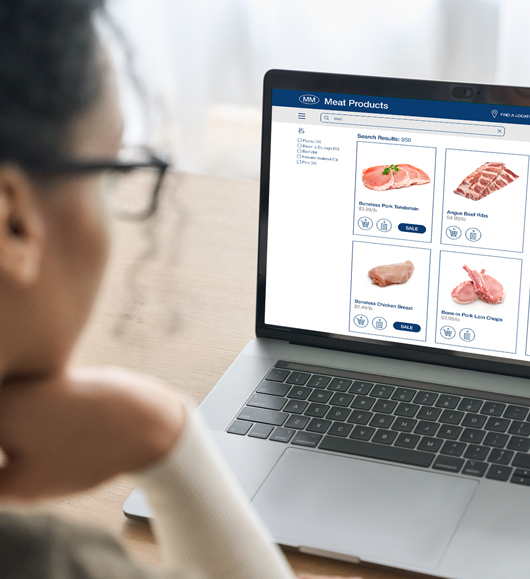
The “Future of Foodservice” Series: D2C is Here to Stay
by Maggie O'Quinn | E-Commerce
In this multipart blog post series, Midan team members are sharing how restaurants, retailers, distributors, producers and chefs have had to rethink foodservice – and what we believe the meat industry can do to match that creativity to find new ways of doing business....

Multicultural Consumers Are Vital to Your E-Comm Meat Purchases
by Michael Uetz | E-Commerce
Every day, the U.S. population is becoming increasingly diverse. In fact, 44% of Millennials, the largest living generation, are considered multicultural.1 The traditions and heritage of multicultural consumers – including U.S. Hispanics, African Americans and Asian...
Reminisce and Reframe: Lessons from Jack’s Old South
by Connor Guyton | Marketing
In March and April, social media was inundated with pictures of friends trying their hand at bread baking. Now, as the weather has gotten warmer, there’s a new trend emerging: “Just bought my first smoker, what should I cook on it first?” With “safer at home” measures...

The “Future of Foodservice” Series: Lessons in Creativity Through the Meat Lens
by Maggie O'Quinn | COVID-19
Few industries were hit as hard by COVID-19 as the foodservice industry. Overnight, nearly every restaurant in America was forced to close its dining rooms, find new revenue streams and (the 2020 word of the year) pivot. Luckily for restaurants, many of the qualities...

Understanding Social Media for the Meat Industry
by Cassandra Staley | Omnichannel
You’ve heard that social media is important – but with dozens of channels, unlimited content types and a new normal, knowing where to start can be tough, especially when the meat industry has experienced so much change. This blog will give you some tips on how to...

How COVID-19 has upped the stakes for meat branding
by Danette Amstein | COVID-19
I have made only three trips to the grocery store since the pandemic hit in mid-March. At first, I resorted to Instacart because two family members had potentially been exposed to COVID-19 and we were self-quarantining. When I started, Instacart through Publix was the...
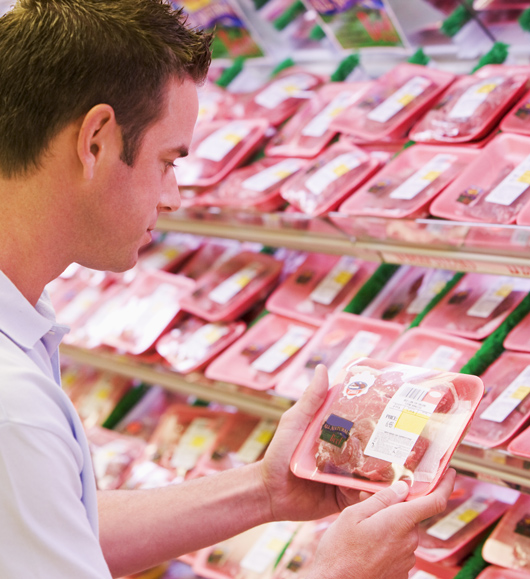
Meat Processors in the Spotlight: Five Best Practices for Transparency
by Michael Uetz | Transparency/Traceability
The COVID-19 pandemic has caused massive, heartbreaking devastation both in the number of lives lost and the number of livelihoods threatened. The meat industry has been hit especially hard: 67 meat plant workers have died and more than 17,000 have been sickened. In...

Chaos Follows Crisis: What We Can Expect
by Steve Hixon | COVID-19
The European Black Death (1347-1351), the Spanish Flu (1918 – 1919) and the Stock Market Crash (1929)1. What do these three historical events have in common? They ignited crisis, they abruptly changed daily routines, they created a “new normal.” Unfortunately,...

Eight Ways to Reassure Consumers the U.S. Meat Supply Chain is Secure
by Midan Marketing | COVID-19
As we all continue to struggle with the effects of the COVID-19 pandemic, we know that meat and poultry processors are focusing all their efforts on ensuring worker safety while keeping the lines running to meet retail demand. Unfortunately, with panic buying and...

Meat Marketing During COVID: Don’t Go Dark Now
by Danette Amstein | COVID-19
COVID-19 has created a climate of incredible uncertainty for companies and brands. Because it’s obviously not a time for “business as usual,” it’s natural to wonder if you should pull back on marketing. You might be thinking: “I don’t want to appear insensitive during...

Self-Quarantine Reflections: Two Action Steps for the Meat Industry
by Danette Amstein | COVID-19
Like you I am trying to wrap my head around what has transpired in the last week because of COVID-19. I am writing this on Sunday afternoon – Day #8 of our family’s self-quarantine. Why? Because my husband and daughter were in NYC when things got crazy. When they...

National Ag Day 2020: It’s time to (virtually) hug a farmer!
by Kelly Loganbill | Marketing
At Midan Marketing, we consider it an honor to work every day with those that produce, process, sell and serve protein. During this time of uncertainty due to COVID-19, those in the food chain are working overtime to ensure we have the safest, most plentiful food...
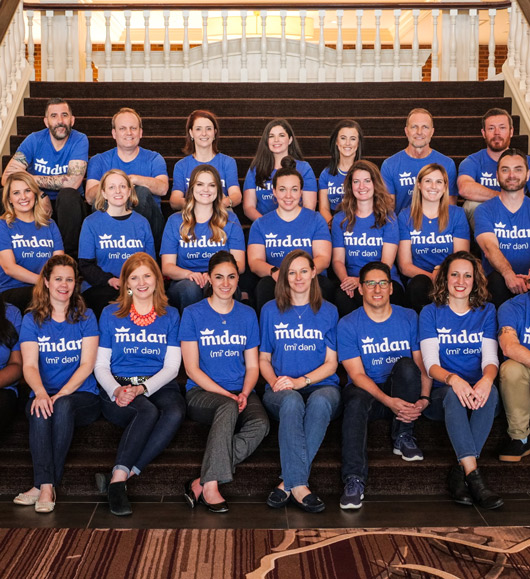
AMC 2020 Top 10 Blog
by Midan Marketing | Marketing
#MidanTakesAMC: Our team was on site at the 2020 Annual Meat Conference, hearing the latest facts and figures about the state of today’s meat industry. We’ve distilled down two-and-a-half days of heavy-duty meat data into these top takeaways:1. Celebrate: We’re still...

The State of Women in Agriculture in 2020
by Myasia Burns | Marketing
Fellow agribusiness movers and shakers: Our industry is changing right before our eyes. According to the 2019 Agribusiness HR Review, 63% of agribusiness companies surveyed reported that the proportion of women in their workforce has grown over the past five years....
Replace My Bone-In Ribeye? Never.
by Michael Uetz | Marketing
Last week you read in Steve Hixon’s blog that he and I attended the Cultured Meat Symposium last November in San Francisco. Steve shared from a very personal perspective the dichotomy he faces daily as a voracious carnivore with a family unit that includes a...

Want year-end success? Re-evaluate your plan now
by Danette Amstein | Marketing
“So, how did that work out?” This is a question my grandmother used to ask me with her hands on her hips and one eyebrow raised. You can guess the “I-told-you-so” tone. It was always after I had failed miserably at something I claimed I knew how to do. Nanny — as all...
Cell-Based Meats: Coexist, But Don’t Roll Over
by Steve Hixon | Alt-Meat
Picture this: An omnivore (who leans toward carnivore), a vegetarian and a vegan converge at 6:00 p.m. They stare in silence while taking turns scrolling through the Uber Eats app. Frustration builds… this group has elevated the term “dining nightmare.” The conflict...

Leveraging the ‘Voice of the Customer’
by Jessee Jones | Omnichannel
The old adage “The customer is always right” was once the foundation for good customer service – do what it takes to make the customer happy, no questions asked. While the basic premise is still the same, that blanket approach has gone out the window. Today’s...
What’s Really Driving Plant-Based Protein Purchases?
by Michael Uetz | Alt-Meat
If you’ve been paying attention to the happenings in Hollywood, you might think that meat will have a starring role in the next big-screen blockbuster as the evil villain. Along with the Golden Globes serving a meatless entrée at its awards ceremony, prominent actors...

Plant-based meat: Resolve to keep it real in 2020
by Danette Amstein | Alt-Meat
Happy 2020! It is time to make our new year’s resolutions – not the kind we have completely forgotten by Jan. 31, but rather those that create new habits with better outcomes. For many Americans, the gluttony of Christmas cookies and eggnog leads to a resolution...
Use SEO to Maximize ROI
by Cameron Gordon | Omnichannel
If you’ve ever searched for anything on Google, then you have experienced SEO at work. SEO stands for Search Engine Optimization, which is the practice of optimizing your website in order to increase the amount and quality of traffic it gets. Why is SEO important? SEO...
Beam me up, Siri: What voice-assisted search means for the meat business
by Danette Amstein | Technology
A weeklong business trip in November uncovered a shocking revelation: Siri has become my new BFF. I asked her for the weather each morning, the location of the closest gas station and directions to a restaurant. I had her text my husband while I was getting ready for...
For Grass-fed Beef Consumers, It’s All About the Why
by Maggie O'Quinn | Transparency/Traceability
“People don’t buy what you do, they buy why you do it.” Simon Sinek’s famous reminder to start with “why” is a powerful one for all of us as we ponder what the future of the meat business looks like. Somehow, we’ve found ourselves in a strange new world where we are...

The meat industry could take a page out of baseball’s book
by Michael Uetz | Marketing
Another World Series is complete. While my Chicago Cubs weren’t in it this year, I always love the Series when we watch two great organizations come together to show how well they play as a team. It takes some very talented individuals who decide they want to work...
I’m a Gen Z, NOT a Millennial and I love meat.
by Giana Spear | Marketing
I grew up in the time of Silly Bandz bracelets, Hannah Montana and the Jonas Brothers. You see, I was born in ‘97 – right on the cusp of the generation change, so I may look like a Millennial, but I have many different shopping and eating habits than my older...
There are two sides to every story; help tell ours
by Danette Amstein | Alt-Meat
Every September we shut down Midan Marketing for four days and gather in one spot for our annual team meeting. This year our team descended on Tulsa, Okla. Our gathering always includes a day visiting places that help us educate our team members who do not have an ag...
Millennials Want Meat
by Olivia Bellon | Marketing
I can’t tell you how many times I’ve been in public and someone – presumably older than I am – makes a comment about how fast I type on my computer or on my iPhone. It never fails to surprise them – and it immediately categorizes me as a typical “Millennial.” You know...
Seeing the Potential in Plant-based Protein
by Connor Guyton | Alt-Meat
Beyond Meat® and the Impossible™ Burger have successfully fought their way into consumers’ collective consciousness. While people are flocking to fast food royalty to try their Impossible offering, I am happy to stay home with my Angus beef burger. You see, somewhere...
Helping meat make the grade in college
by Danette Amstein | Marketing
In the last month, nearly 19 million students packed their bags and headed off to college. My son was one of them; he was starting his sophomore year. Because he was moving into a house with two other young men versus the dorm, I found myself adding cooking supplies...
Stellar Client Support to Make Meat a Star
by Meredith McDuffie | Marketing
New Orleans is a culinary capital known for its seafood dishes: oysters Rockefeller, shrimp creole and court-bouillon are just a few in a long, distinguished list. But as a former resident I know firsthand that meat is an important part of local cuisine – it just...
Are you ready for new technologies impacting food distribution? Today’s end consumers are.
by Steve Hixon | Technology
As you begin reading my blog, you’re probably thinking: Here we go, another perspective on the future of technology and its impact on my meat operation. Another so-called expert telling me that e-commerce is taking over retail, warehousing is practically executed by...
Millennials and Gen Zs are Driving Today’s Foodservice Trends: Learnings from NRA
Alex Tyre and Megan Griesheim, two of Midan’s Account Team members, brought their unique Millennial perspective to the 2019 National Restaurant Association Show and share their musings below. From cannabis demos to robotics, the influence of Gen Z and Millennial...
If your meat product doesn’t have a story you might as well dig a hole
by Danette Amstein | Branding
This spring I was on the road six out of eight weeks, which is a lot for me. I attended three conferences and led a couple of strategy and planning sessions. I met amazing people and heard incredible stories – both personal and how businesses fought to overcome, scale...
Join the Beef and BBQ Party
by Cassandra Staley | Marketing
May is National Beef and BBQ Month and we meat heads at Midan couldn’t be more excited to celebrate the cornerstone of our industry: meat. If you haven’t noticed by now, Midan is a passionate bunch about meat. We’re only half-joking when we say we eat, breathe and...
Flexitarians: Don’t write them off
by Michael Uetz | Alt-Meat
I must admit I was amused by the banter that followed Gregory Bloom’s blog a few weeks ago entitled, “The fake meat fad will fade.” The extended list of comments showed that even within the meat industry, there are varied and very strong opinions on the potential...
Grassfed Beef Farmers: Leading the Way with Sustainability
by Maggie O'Quinn | Sustainability
One of the things I love about my job at Midan is the opportunity to attend meat industry events to network with ranchers, meat companies, retailers and other stakeholders in the meat supply chain. It gives me a broad window through which to view the evolution of our...
One game-changing thing consumers are doing processors must address
by Danette Amstein | Marketing
Recently I was asked a question that has kept my wheels turning: What is the one thing processors must address to keep consumers coming back, purchasing more and more meat? Wow – I’m limited to one thing? I had to ponder this for a while. Interestingly, it turns out...
Understanding meat eaters’ key drivers to purchase
by Michael Uetz | Marketing
As a researcher who has been tracking the consumers’ relationship with meat for many years, I get very excited when the consumer is the headliner at an industry conference. This was the case at the 2019 Annual Meat Conference held in Dallas earlier this month. Nowhere...
AMC 2019 Top 10 Blog
by Danette Amstein | Marketing
The 2019 Annual Meat Conference was all about how technology is dramatically impacting every facet of the meat business: the consumer, the product and the buying process. AMC sessions on artificial intelligence, omnichannel purchasing and the rise of meat alternatives...
Social media reviews can help meat processors win B2B customers
by Danette Amstein | Omnichannel
I have been thinking a lot lately about word-of-mouth and the need for the meat industry to lean into the social space where our customers and consumers are hanging out. If you don’t have a strategy for communicating in the social spaces, it is time to identify...

Segment for $uccess
by Kerry Beauchemin | Marketing
“Who am I?” is one of the most fundamental questions of human existence, layered with the complexities and nuances of our experiences, our beliefs, our attitudes and our motivations. It is the same question we marketers and customer insights gurus ask ourselves every...
Why You Should Care About Segmentation Research
I know – you’re expecting a dry and stat-heavy blog about market research. But you’re only half right (I’m a research guy, of course I want to talk about research!), because what I am about to share is very exciting since it centers on the single most dynamic element...
2018 Meat Industry Headlines
by Danette Amstein | Trends
Wow, what a year! Change. Growth. Success. 2018 had it all. Let’s take a minute to recap the themes of this year’s biggest meat industry stories. And look ahead to see how they’ll shape 2019. 1. Positioning Protein Alternatives: Protein alternatives (including the...
Meat: The Benefits of the ‘Real Deal’
by Maggie O'Quinn | Marketing
I love animals; they’re delicious. For me, this is more than a bumper sticker slogan; it’s a way of life. Growing up on a beef cattle farm in Georgia, no meal made it to the table without some form of animal protein on it. There was always plenty of ground beef (read:...
A Millennial’s Two Cents on Meat Alternatives
by Megan Griesheim | Alt-Meat
I am a 90’s baby, loved and known by all as a “Millennial.” I quote the late Kurt Cobain, frontman for Nirvana, not only for the generational icon he is but because he said it best, he said it for all of us and at times he had us screaming it at the top of our lungs,...
Weather the Next Economic Storm with Strategic Planning
by Steve Hixon | Marketing
Those of us in the meat industry usually don’t have the luxury of taking time to contemplate our next move. Prior to joining Midan, I lived in the bullpen of a beef processing facility as well as regularly negotiated sales from my office on four wheels and my other...
What We Can Learn from the Grassfed Movement: Amplify to Multiply
by Maggie O'Quinn | Marketing
The Grassfed Movement has got it going on. Recent Nielsen data tells the story of grassfed beef’s dramatic domestic growth: U.S. retail sales of labeled fresh grassfed beef grew from $17 million in 2012 to $272 million in 2016, doubling every year.But beyond these...
Tomorrow’s Meat Consumer: Are You Ready?
by Michael Uetz | Marketing
I recently had the honor of presenting at the 2018 World Meat Congress (WMC) in Dallas on June 1. Hosted by The International Meat Secretariat and the U.S. Meat Export Federation, WMC brought together more than 700 meat industry leaders from 40 countries to discuss...
Top Six Meat Industry Trends
by Michael Uetz | Trends
There’s a saying in the Midan office: “What got us here, won’t get us there.” It’s a reminder that we need to keep our game sharp to compete in the ever-evolving meat industry. It was in that same vein that my partner Danette Amstein and I presented the top meat...
Are You “Brand Safe”?
by Robin Venable | Omnichannel
As a meat processor, you stake your reputation on the quality and safety of your products. You wouldn’t dream of letting meat leave your plant without following every safety precaution to the letter of the law. Unfortunately, many companies aren’t as careful about...
AMC 2018 Top 10
by Danette Amstein | Trends
At Annual Meat Conference (AMC) 2018, digital dominated. How today’s meat consumers are using digital to plan, purchase and prepare meals was the unifying theme that coursed through nearly every session. As always, the Midan team was on the scene to sift through all...
At Midan, What We Do Is Who We Are
by Danette Amstein | Marketing
Happy New Year! It’s only the second week of 2018, but some of us (no names mentioned!) might already be wavering on those ambitious resolutions we made to do more of “this” and less of “that” in the coming year. While the new year offers a chance to start fresh, it’s...
Top Meat Industry Headlines of 2017
by Danette Amstein | Trends
Oh 2017—what a news-filled, exciting year you have been! Here at Midan we work hard to stay on top of news and trends in the meat industry. As this year wraps up, I wanted to reflect with you on some of 2017’s prominent trends that we believe will impact 2018. The...
Midan’s Reaction to Chain Reaction: Quick Facts on Antibiotic Use in Livestock
by Danette Amstein | Transparency/Traceability
Mainstream media outlets swallowed up the subjective content of the recently published Chain Reaction III study, evoking fear and panic among consumers. The report wants consumers and investors to pressure the top 25 fast food and fast casual restaurants to move to...
5 Ways to Dig into Digital Marketing
by Gibson Palmes | Omnichannel
Remember the days (and sounds) of dial-up internet – kerrhh beep beep wurrh What started as a way to simply store and share information, the internet’s explosive growth has paved the way for Digital Marketing, a full discipline and true necessity for companies. It’s...
Just Another Day at the Office…
by Jo Ann Natt | Marketing
If you know anything about Midan, you know it’s not just an empty slogan when we say that we live, breathe and dream about meat. Our recent annual Team Meeting bears this out in spades. While some companies jet off to Vegas or escape to Disney World to get away from...
How to Spot an Aging Idealist
This blog is the final in our series detailing each of six distinct meat consumer segments from our recent Meat Consumer Segmentation research. My sister and I have always been very different. She likes the heat, I like the cold. She likes spicy foods, I like sweet...
Urban Eclectics, Demystified
by Jo Ann Natt | Marketing
I have raised an Urban Eclectic. I am not exactly sure how it happened: one day I was doling out Cheerios to an infant in a high chair and the next I was sitting across from a 23-year-old eating kimchi for breakfast. If you’re not familiar with Midan’s recent Meat...
Everything Old is New Again: Trends from NRA 2017
by Maggie O'Quinn | Trends
Sometimes the more you look back, the further ahead you can see. This was certainly the case for the exhibiting meat companies at this year’s National Restaurant Association (NRA) Show. They demonstrated that the U.S. meat industry is staying “Ahead of the Crave” by...
Not Your Average Carnivore
I love cooking for family and friends. Whether it’s during the holidays, watching a college football game, or a simple weekday dinner, I take pride in preparing my guests a delicious meal. My husband actually says that the easiest way to insult me is to say that you...
The Selective Foodies Party
by Gibson Palmes | Marketing
Coca-Cola. Team Fitz. Vinegar-based BBQ sauce. Dog lover. Millennial. Thanks to the Meat Consumer Segmentation research study, I can now add a new label to my list: Selective Foodie. In December of 2016, Midan surveyed 2,200 meat eaters to better understand attitudes...
I’m a Premium Player. What About You?
by Haley Frazier | Marketing
When it comes to my shopping habits, I have always been one to know exactly what I need. I am big on making lists and hate going out of my way to make my purchases. Hello, my name is Haley Frazier and I am a Digital Content Coordinator at Midan Marketing. But I...
AMC 2017 Top 10
by Michael Uetz | Trends
Bigger than ever before (with 1,300 attendees!), the Annual Meat Conference (AMC) 2017 was an awesome opportunity to hear from experts across all phases of the meat industry about what’s next for our favorite proteins. We came prepared with our trusty notepads and...
Five Opportunities to Sell More Fresh Meat
by Michael Uetz | Marketing
At Midan, our Market Research Team is always scoping out the consumer trends that are having the biggest impact on the meat industry. A key part of our job is to help our clients understand the implications those trends can have on their business. By assigning meaning...